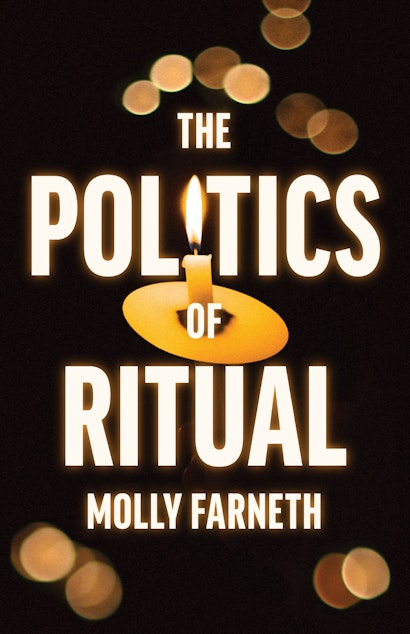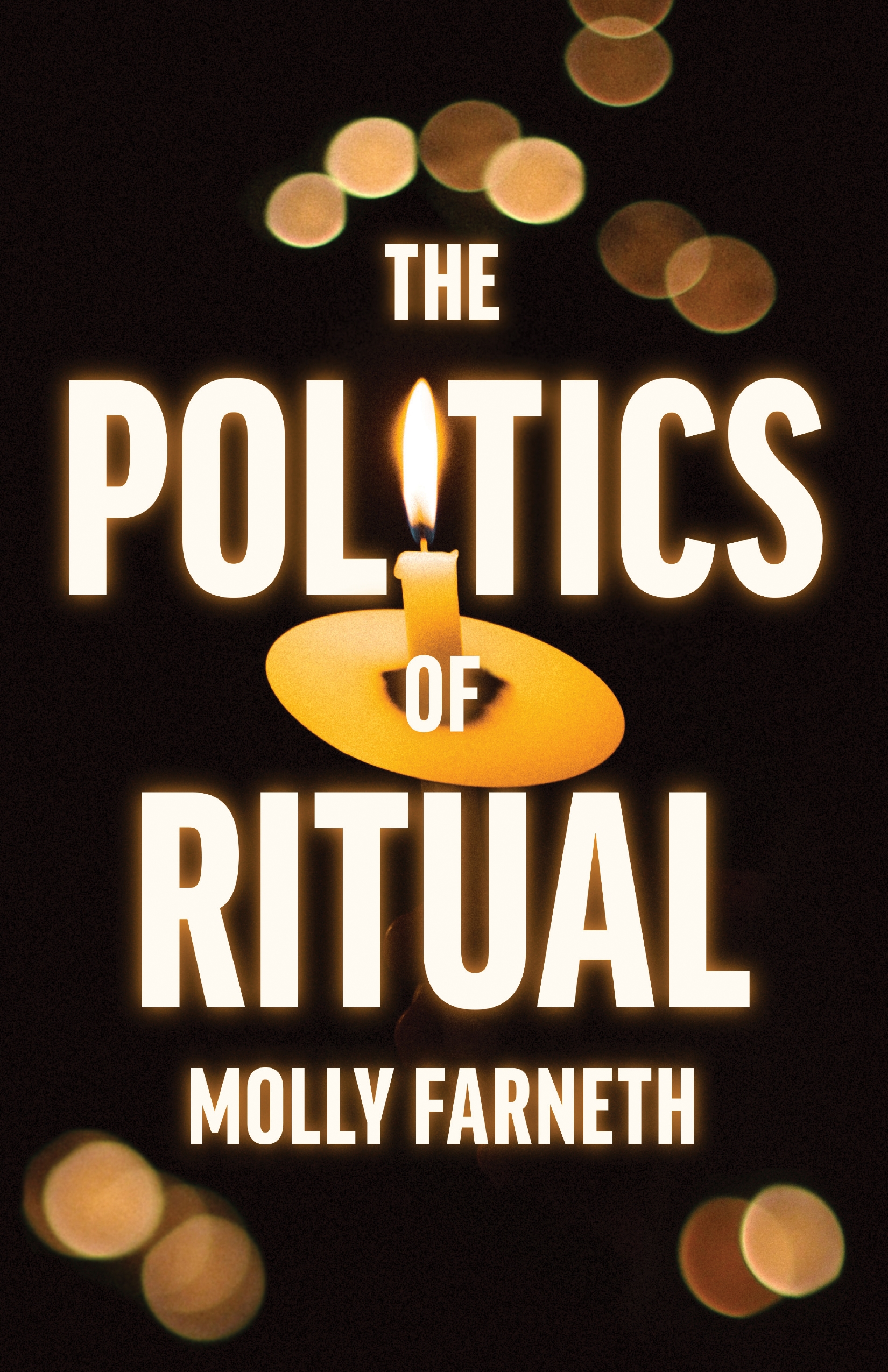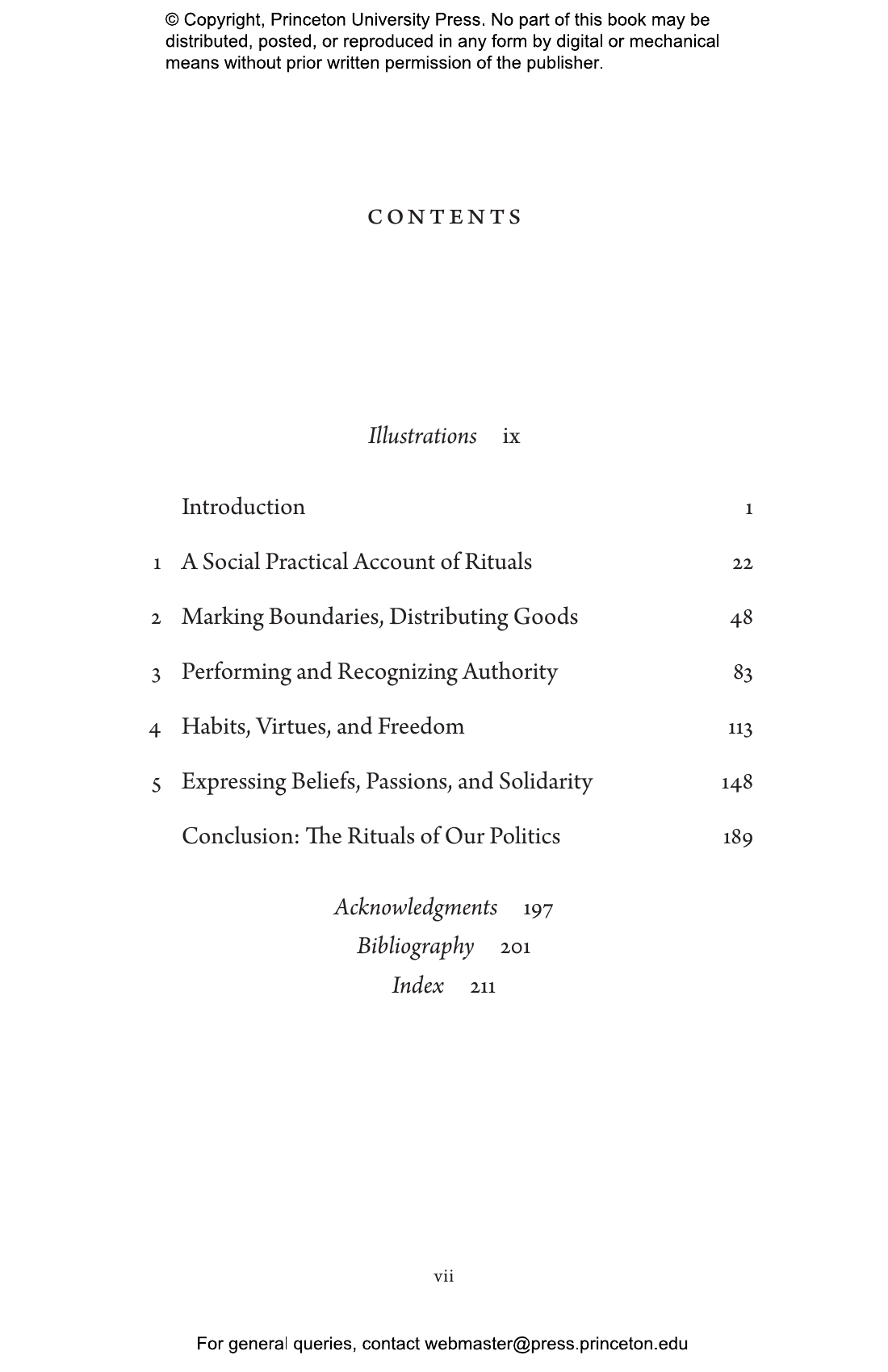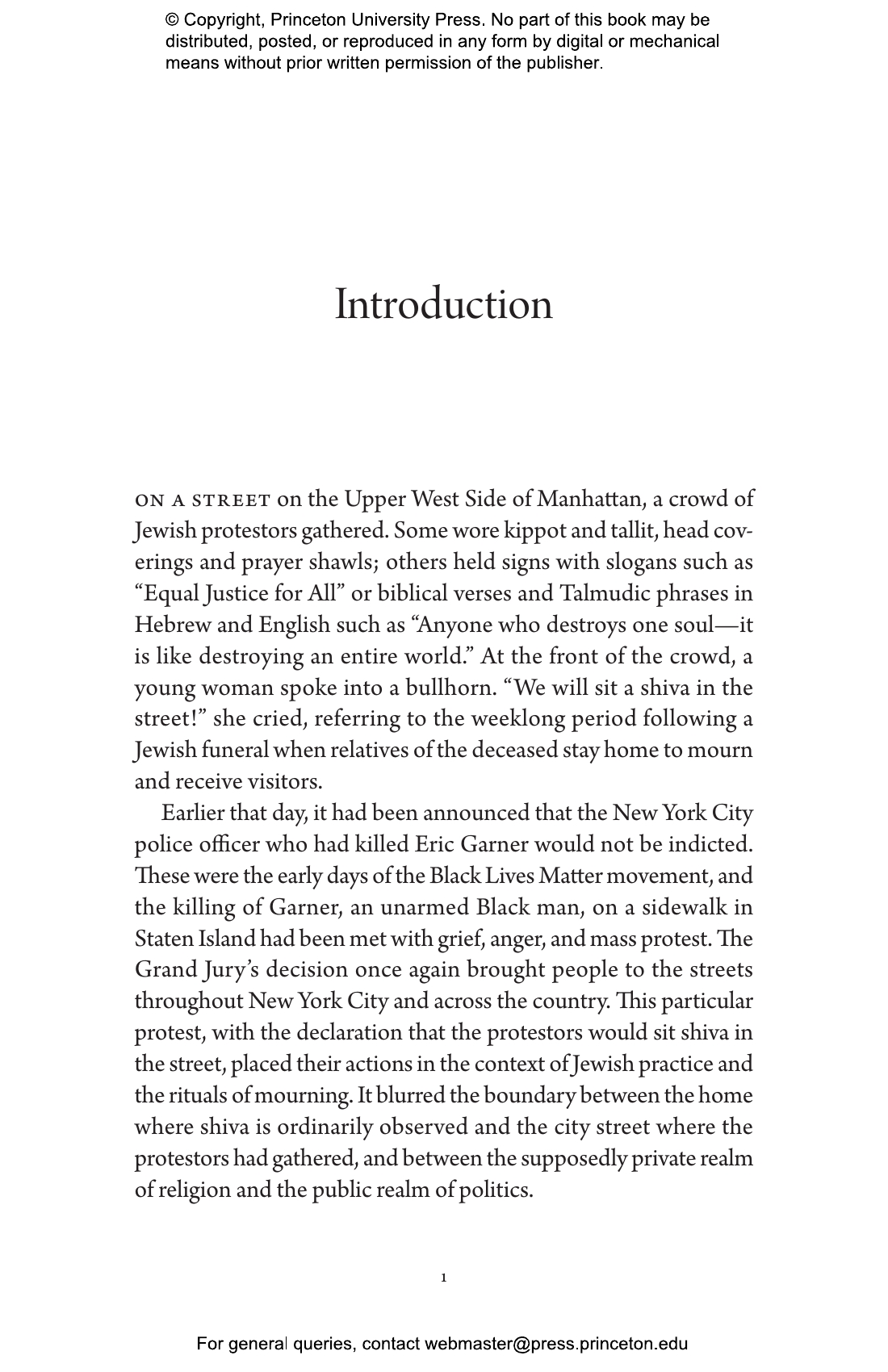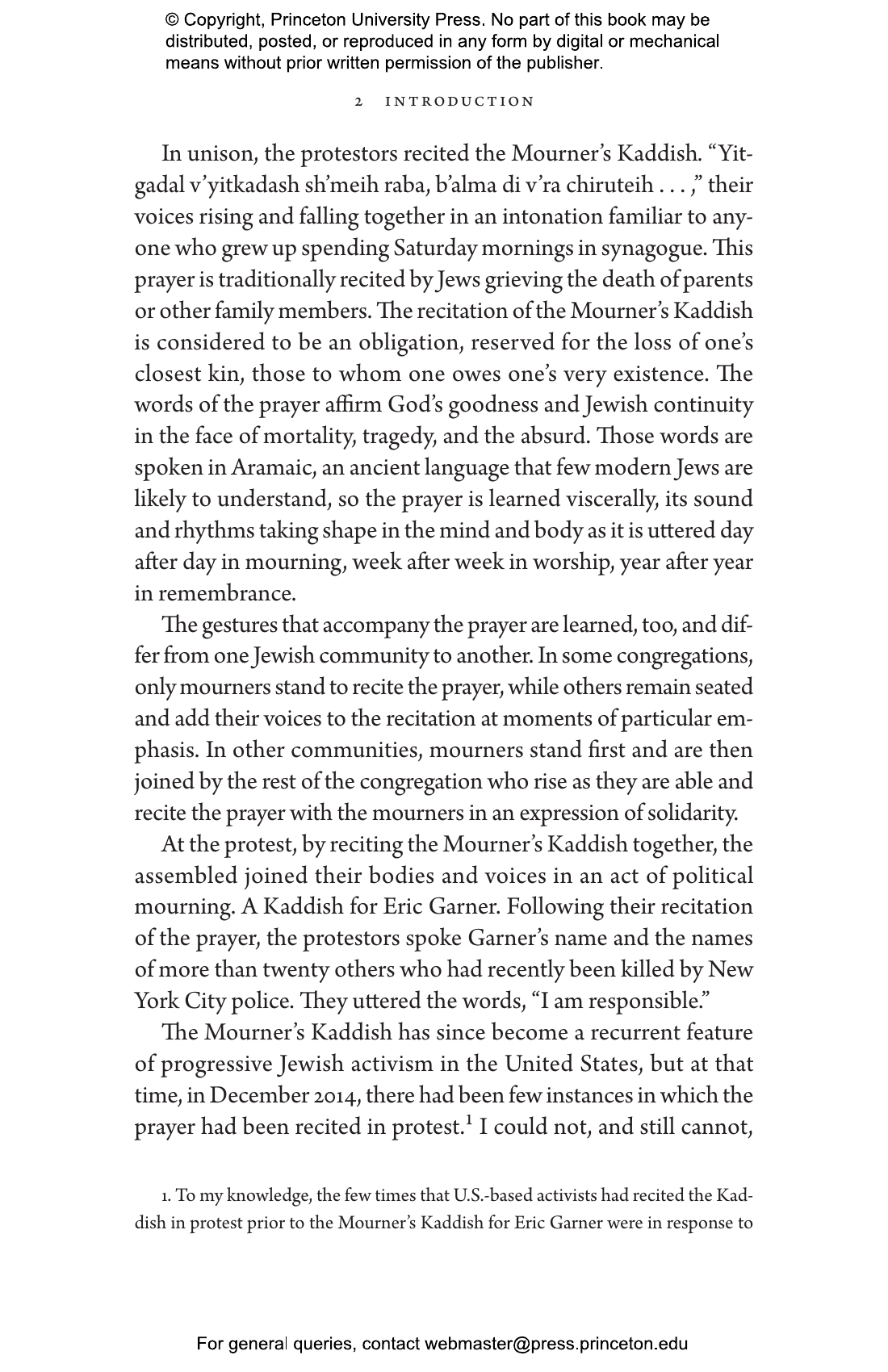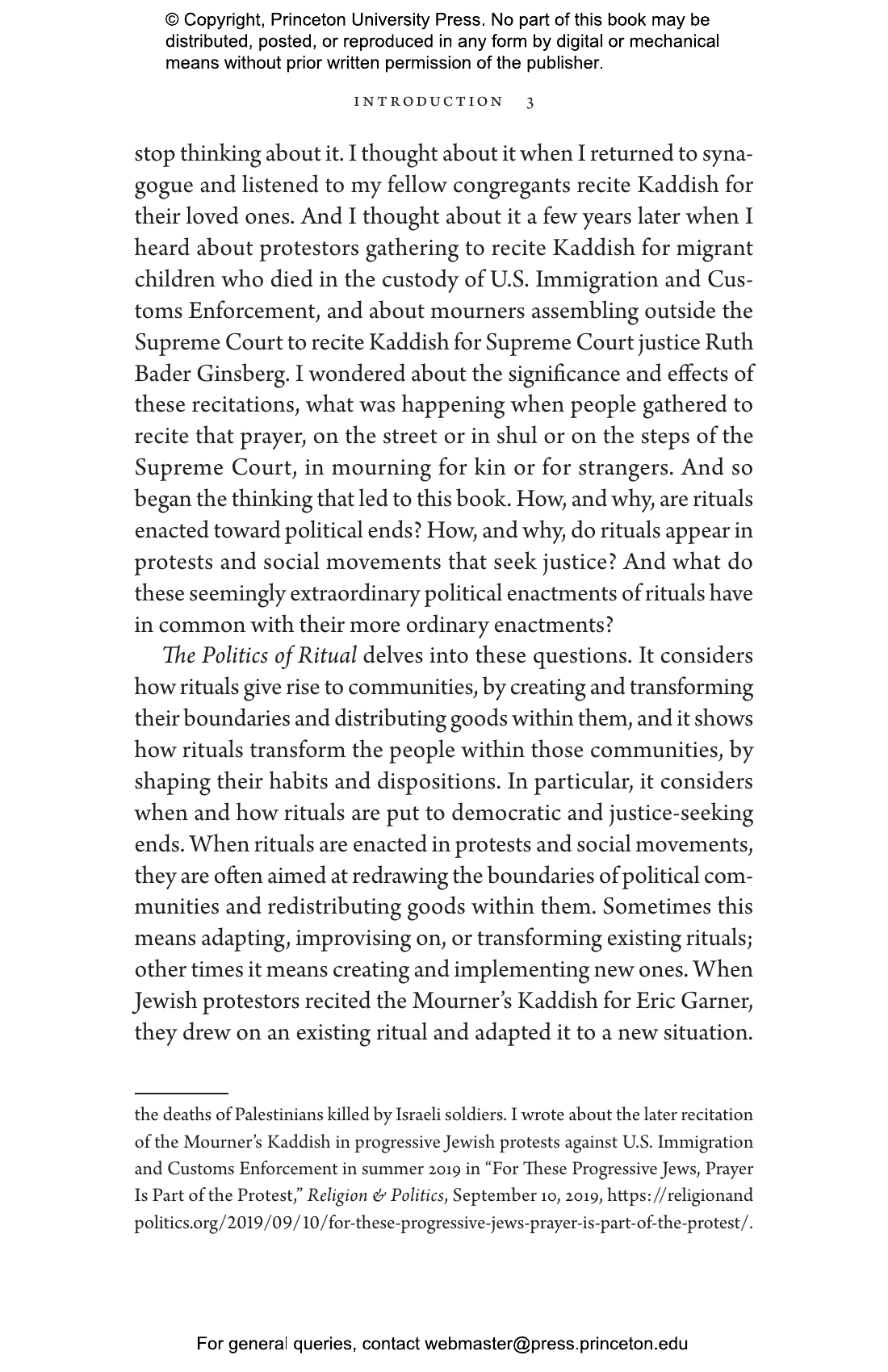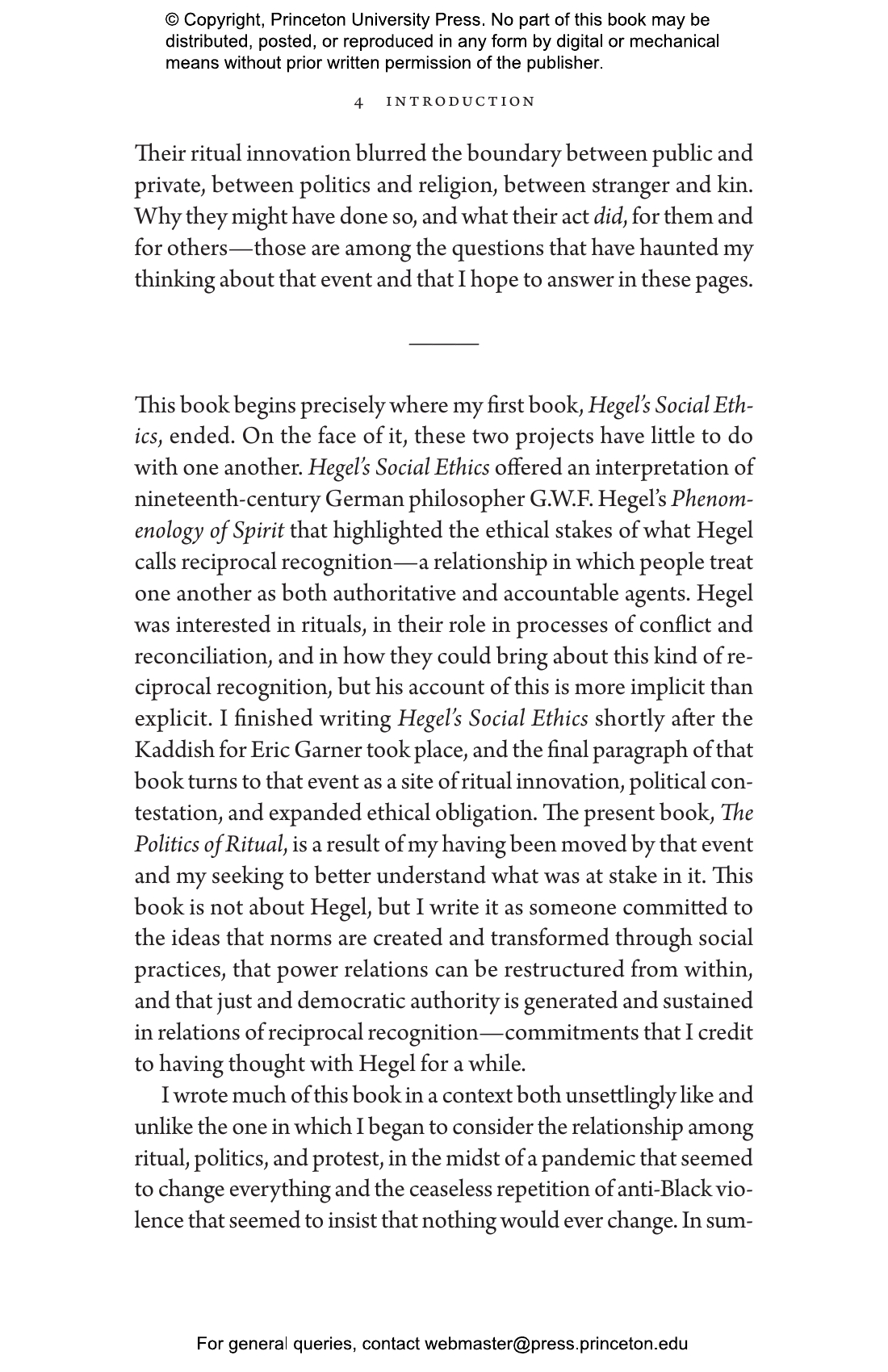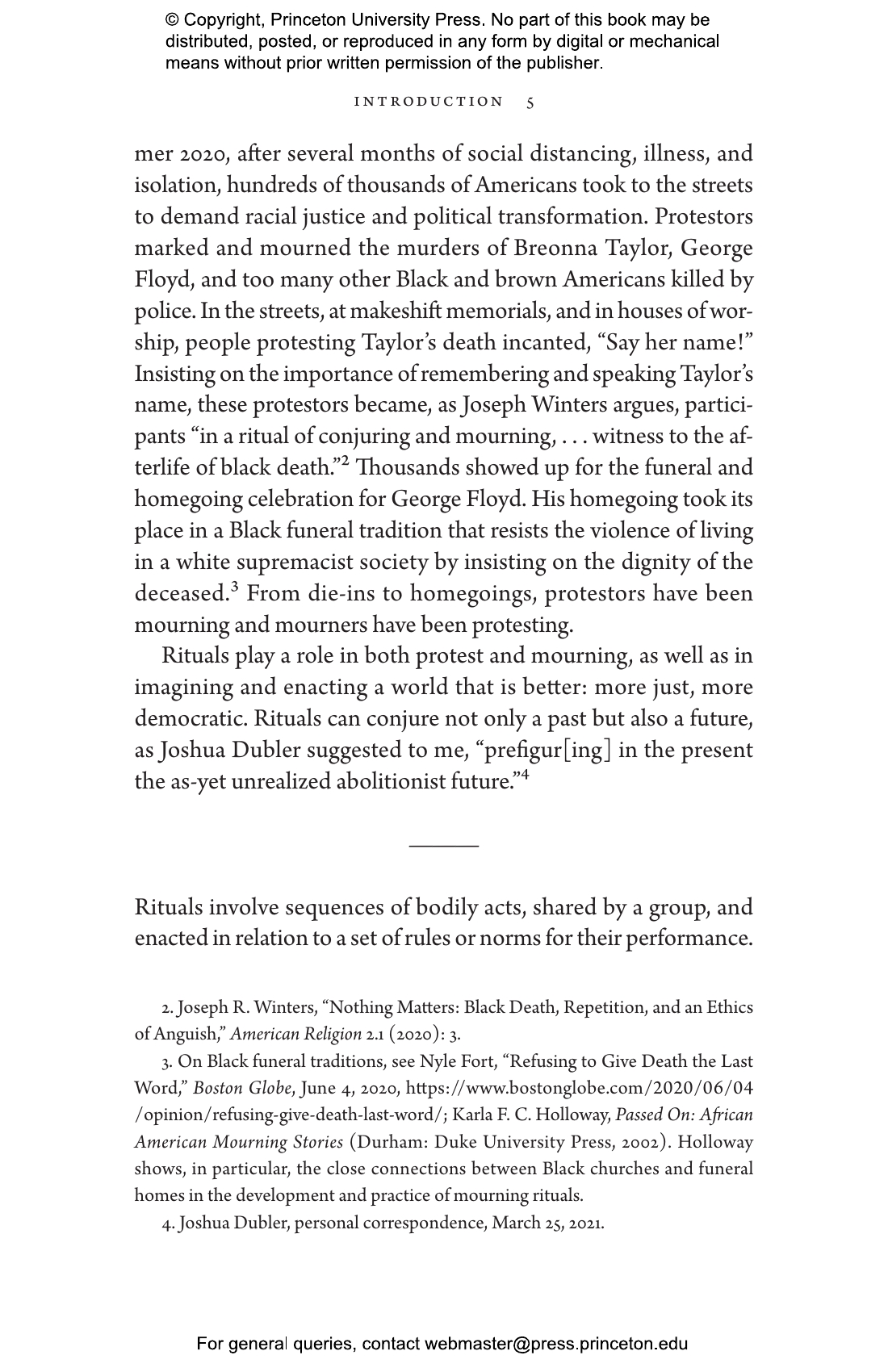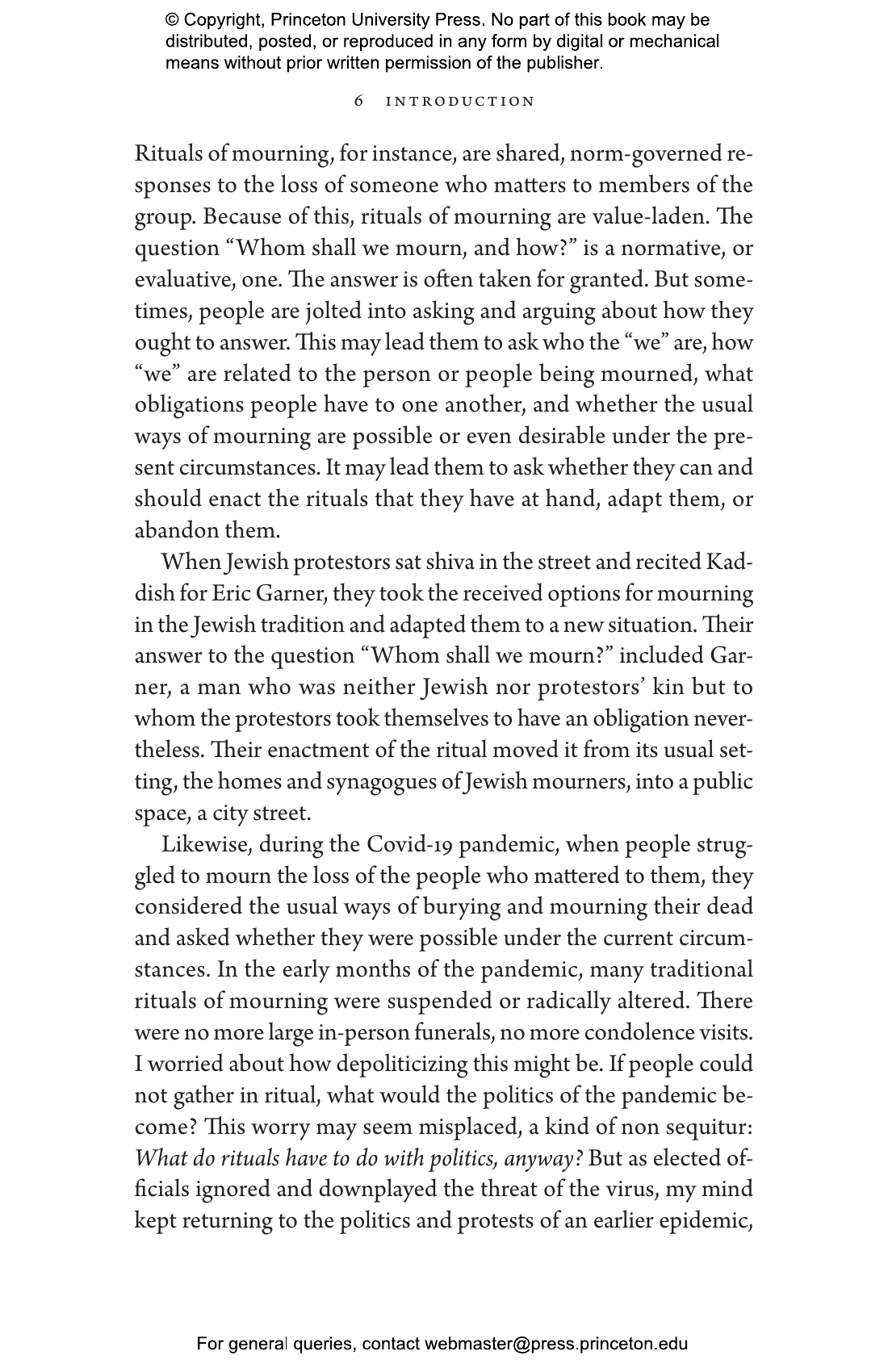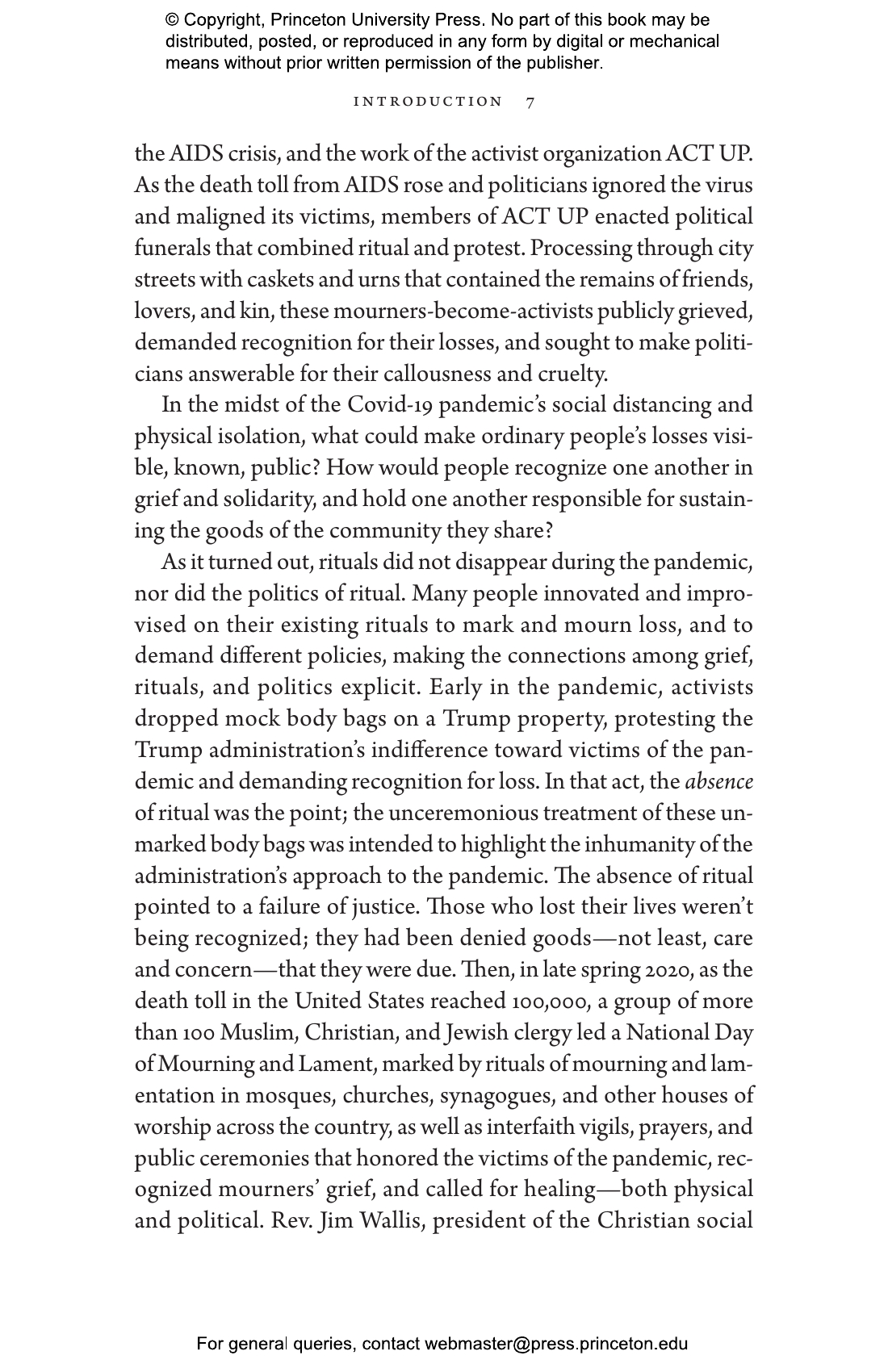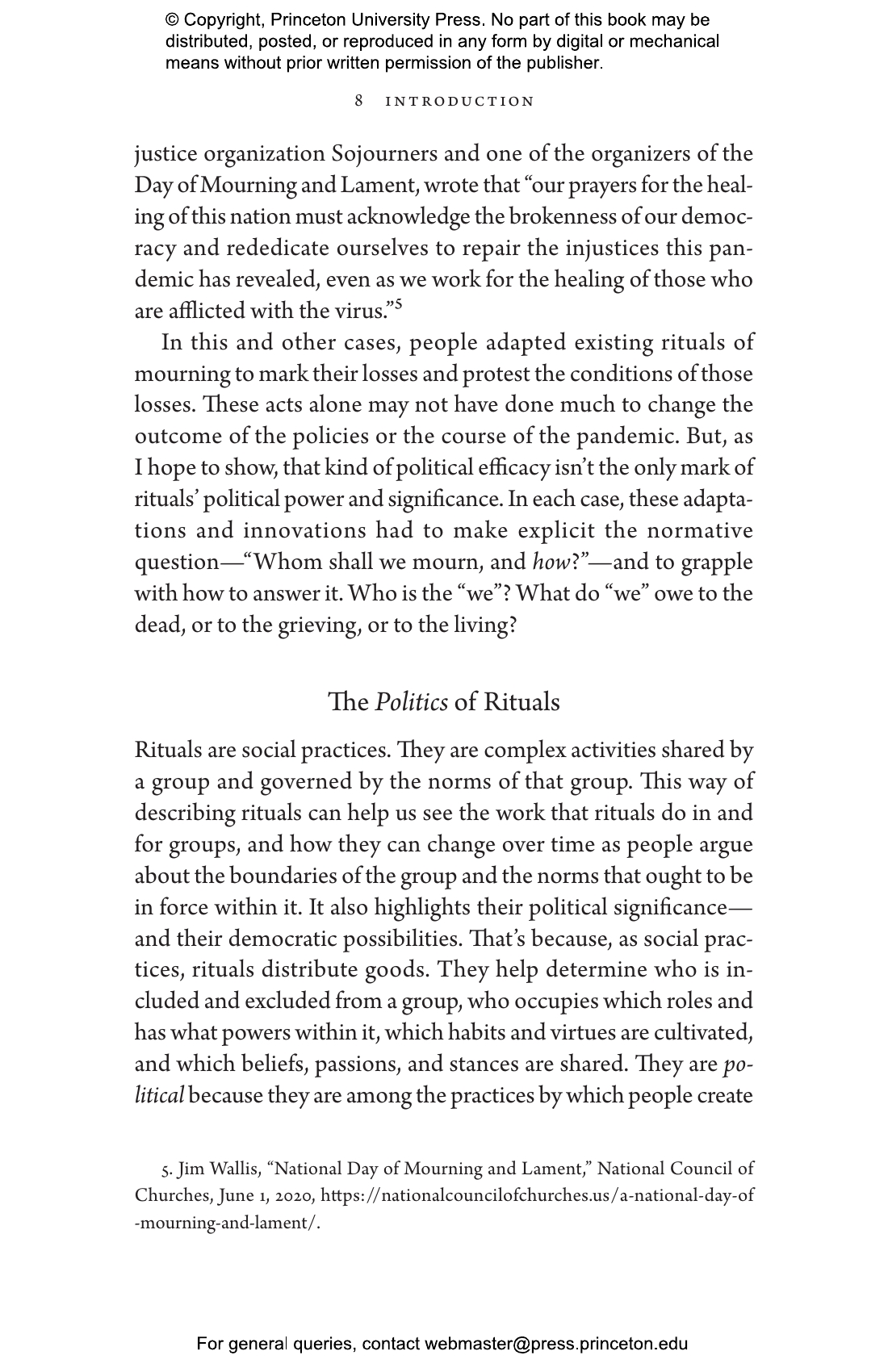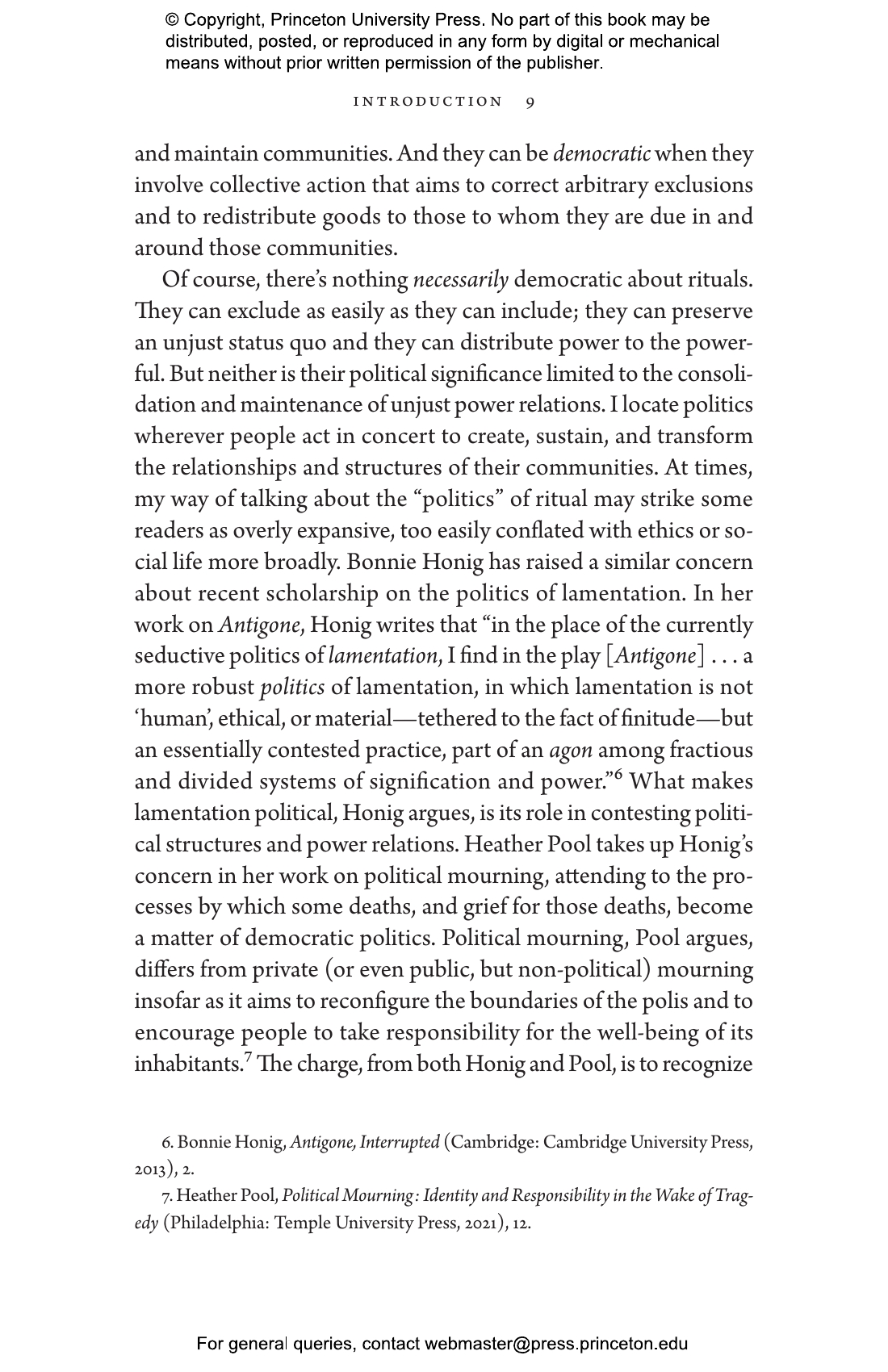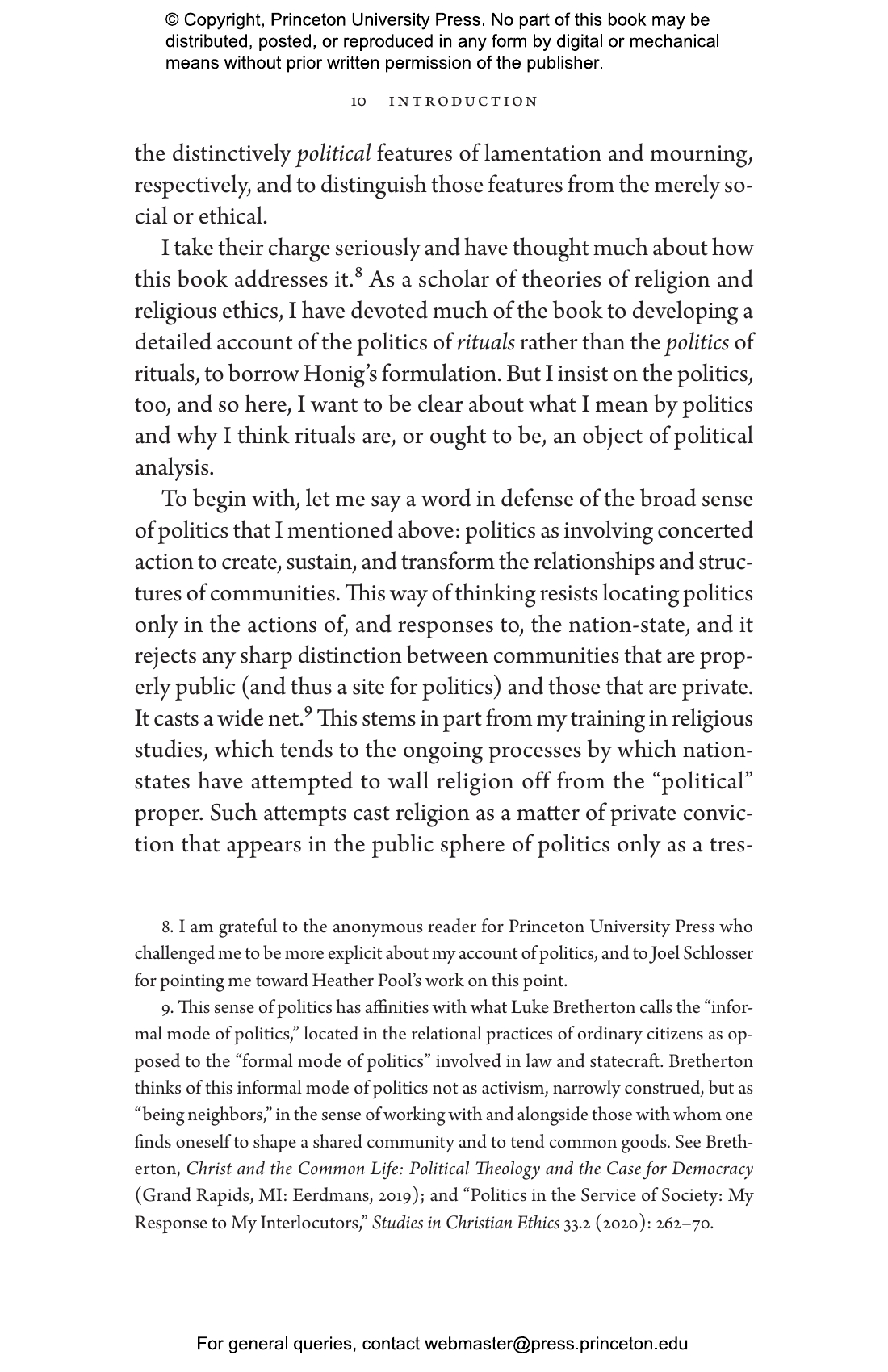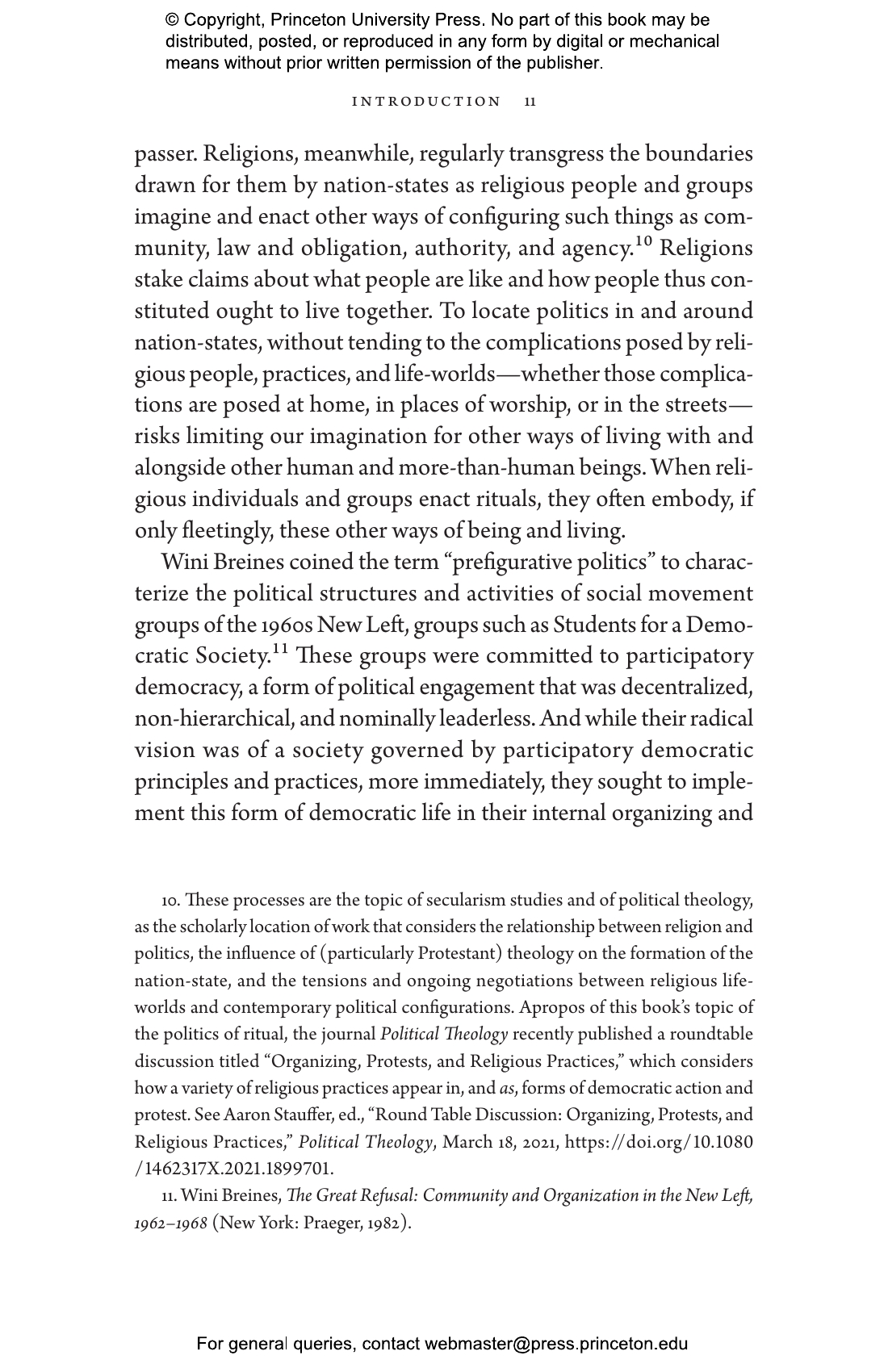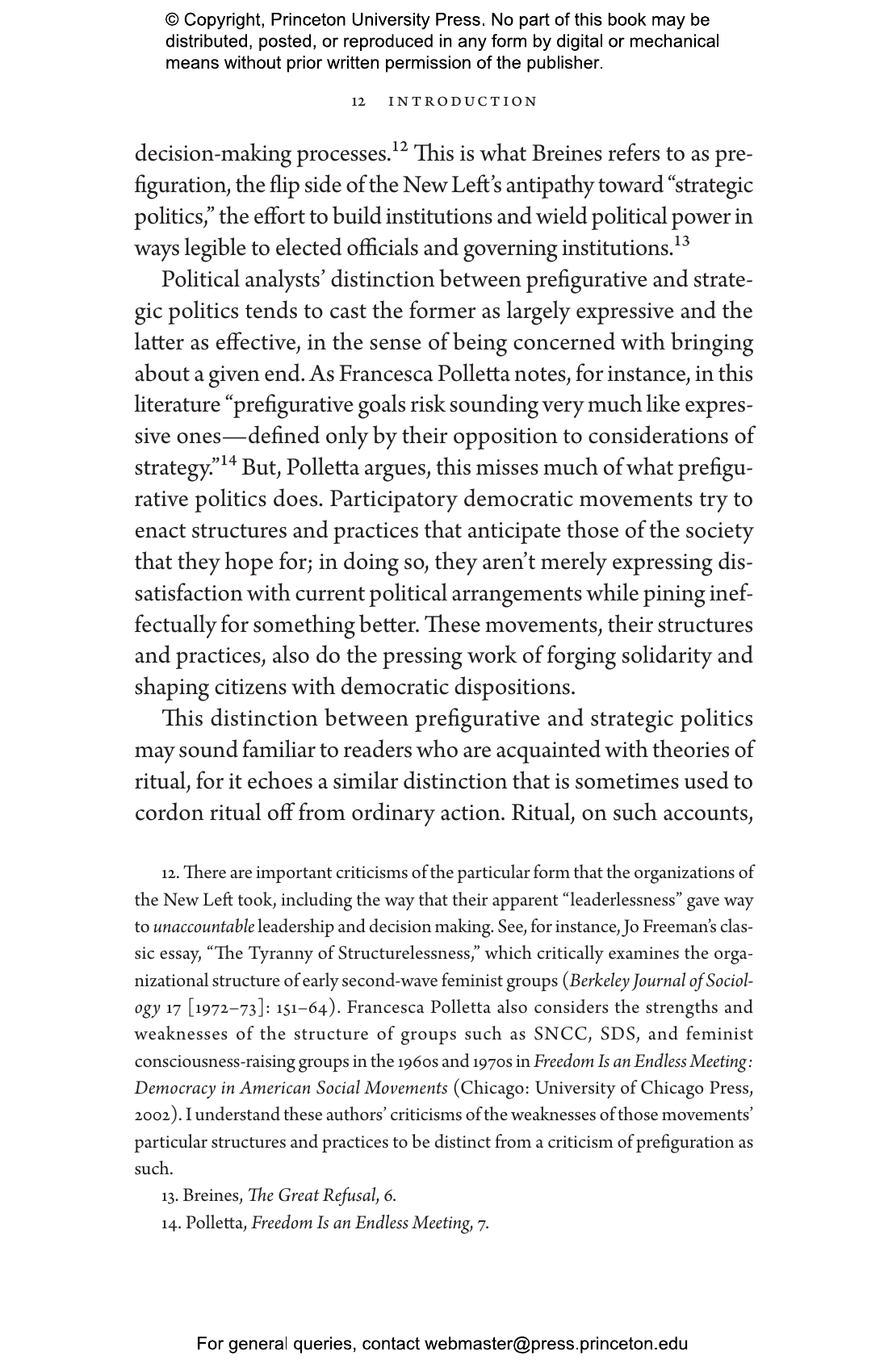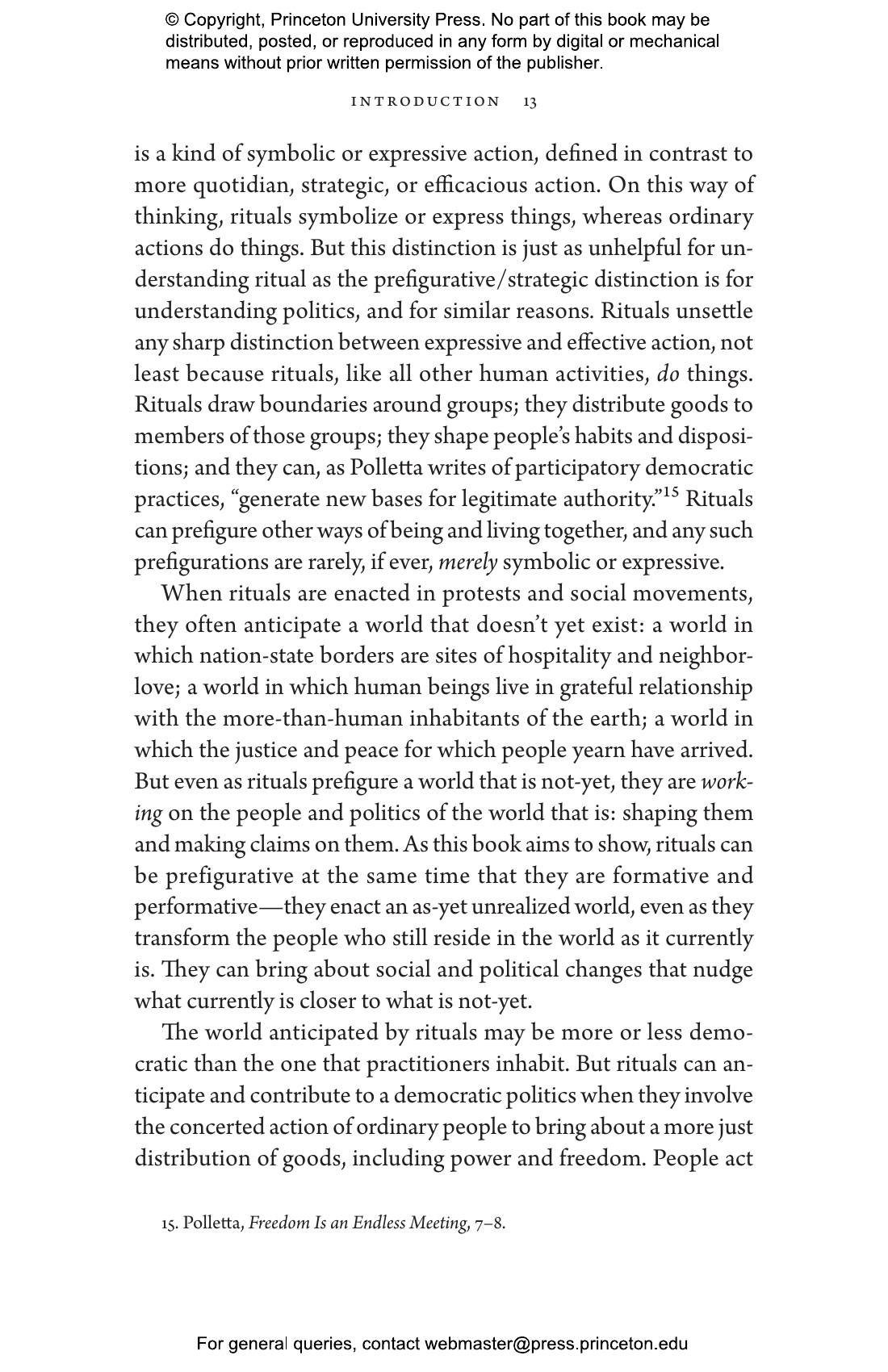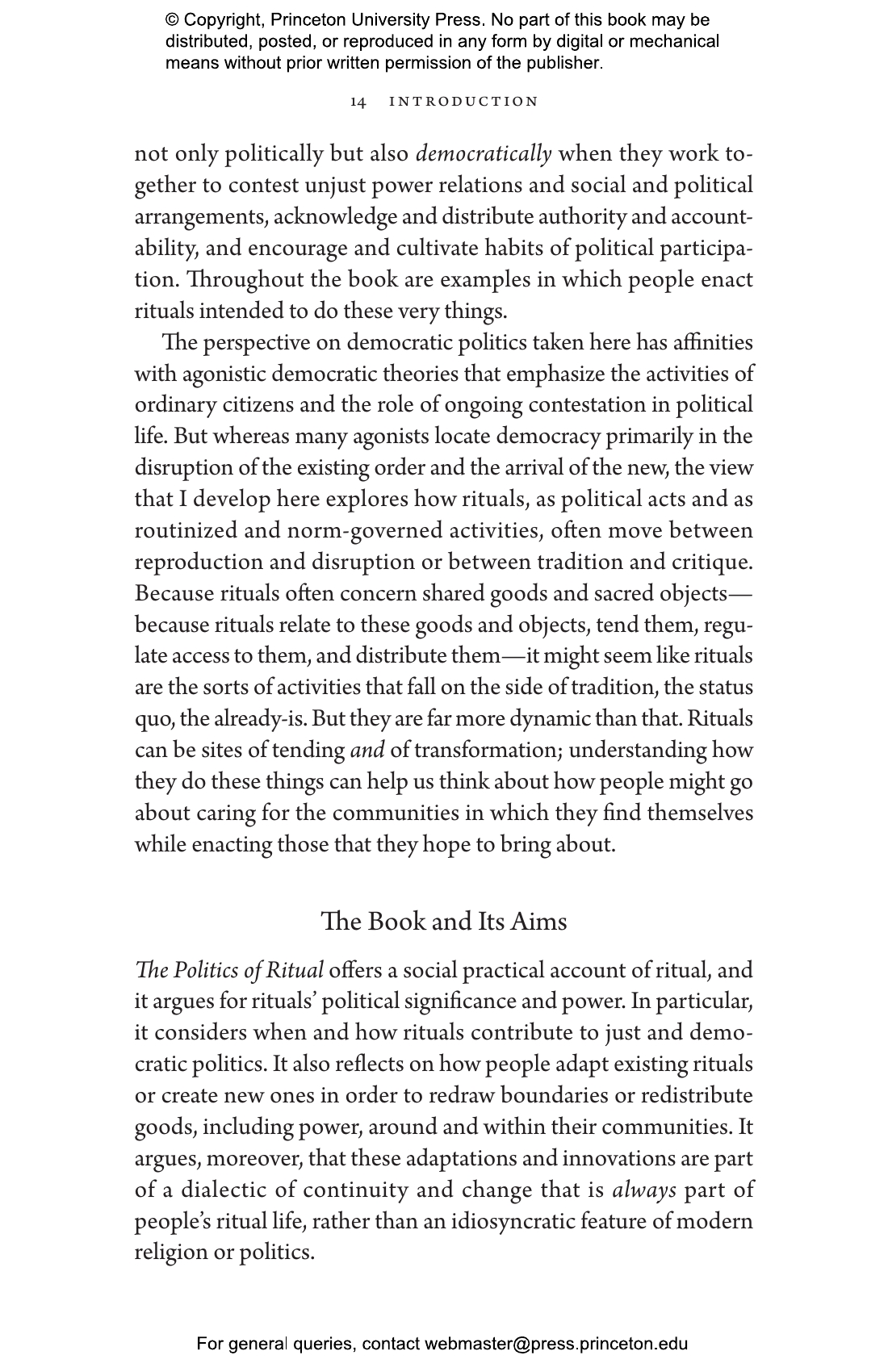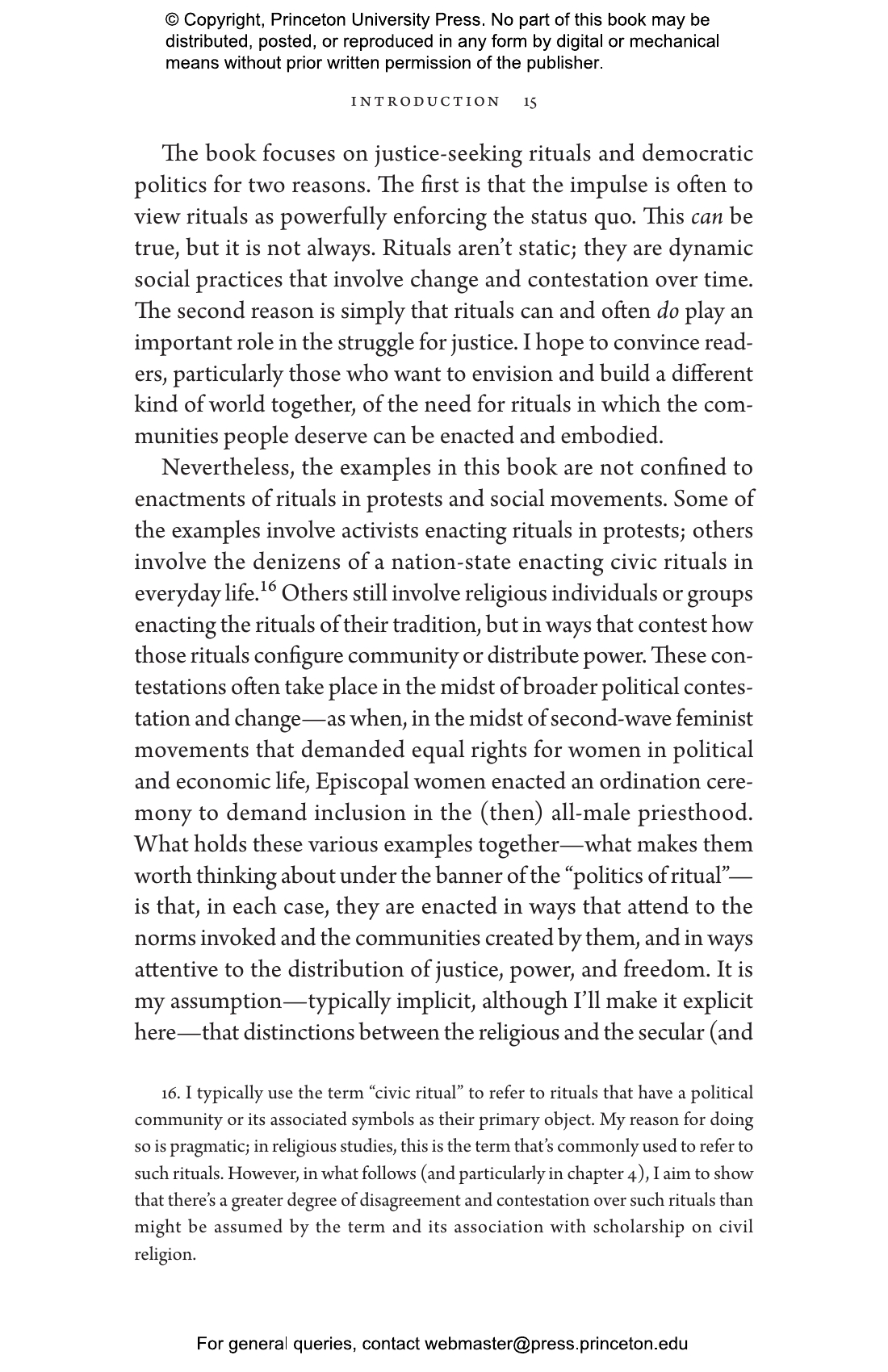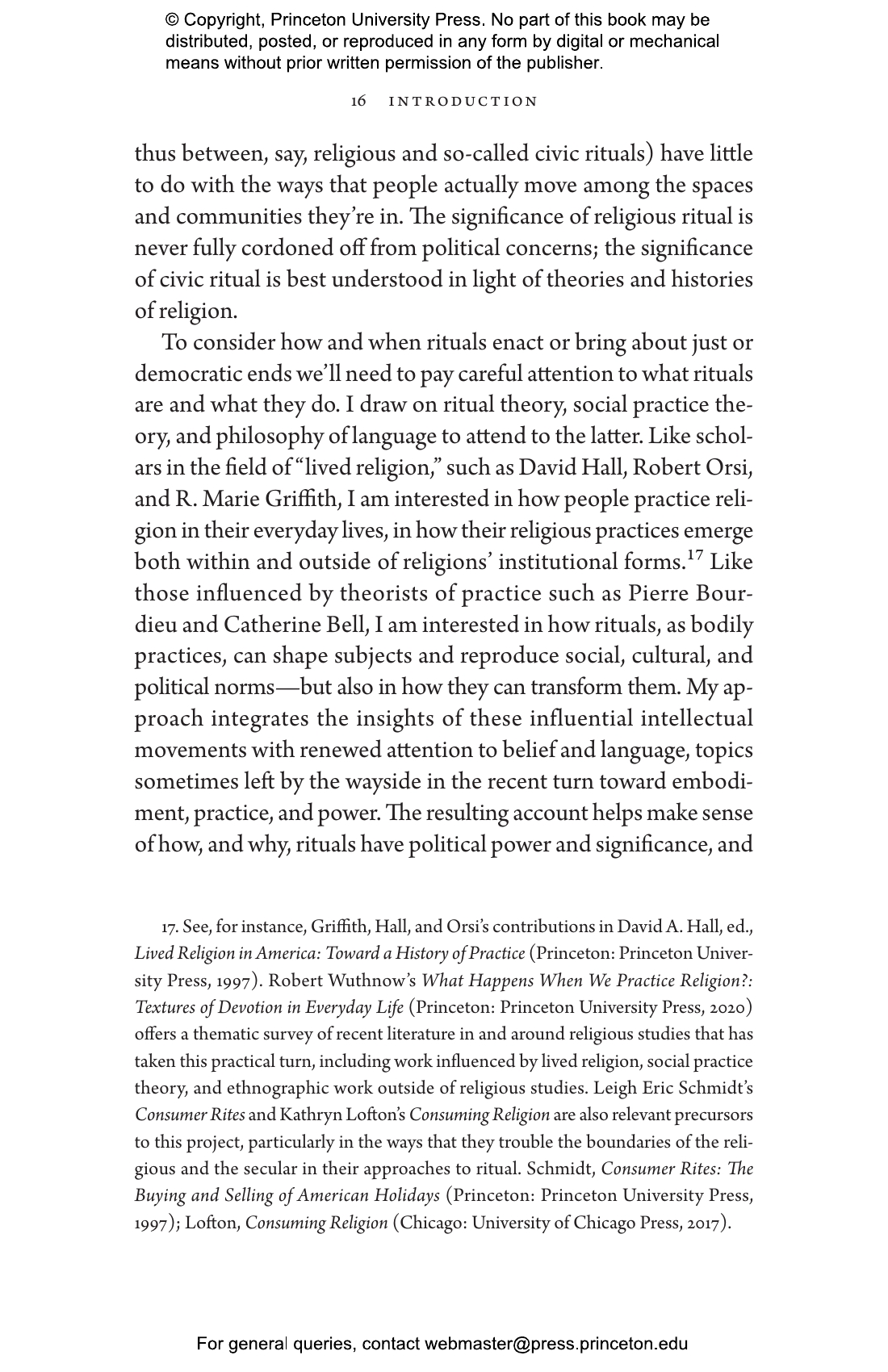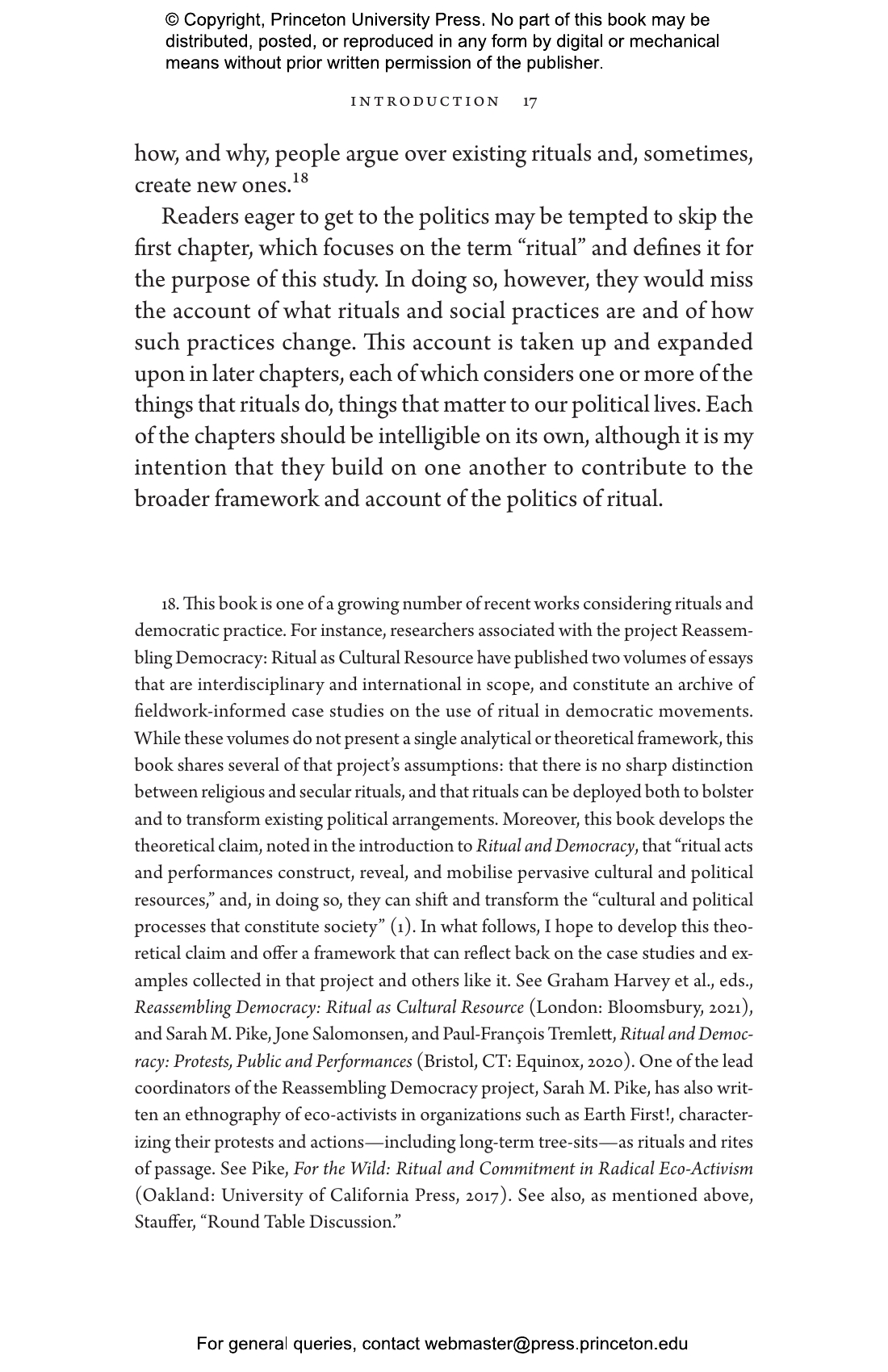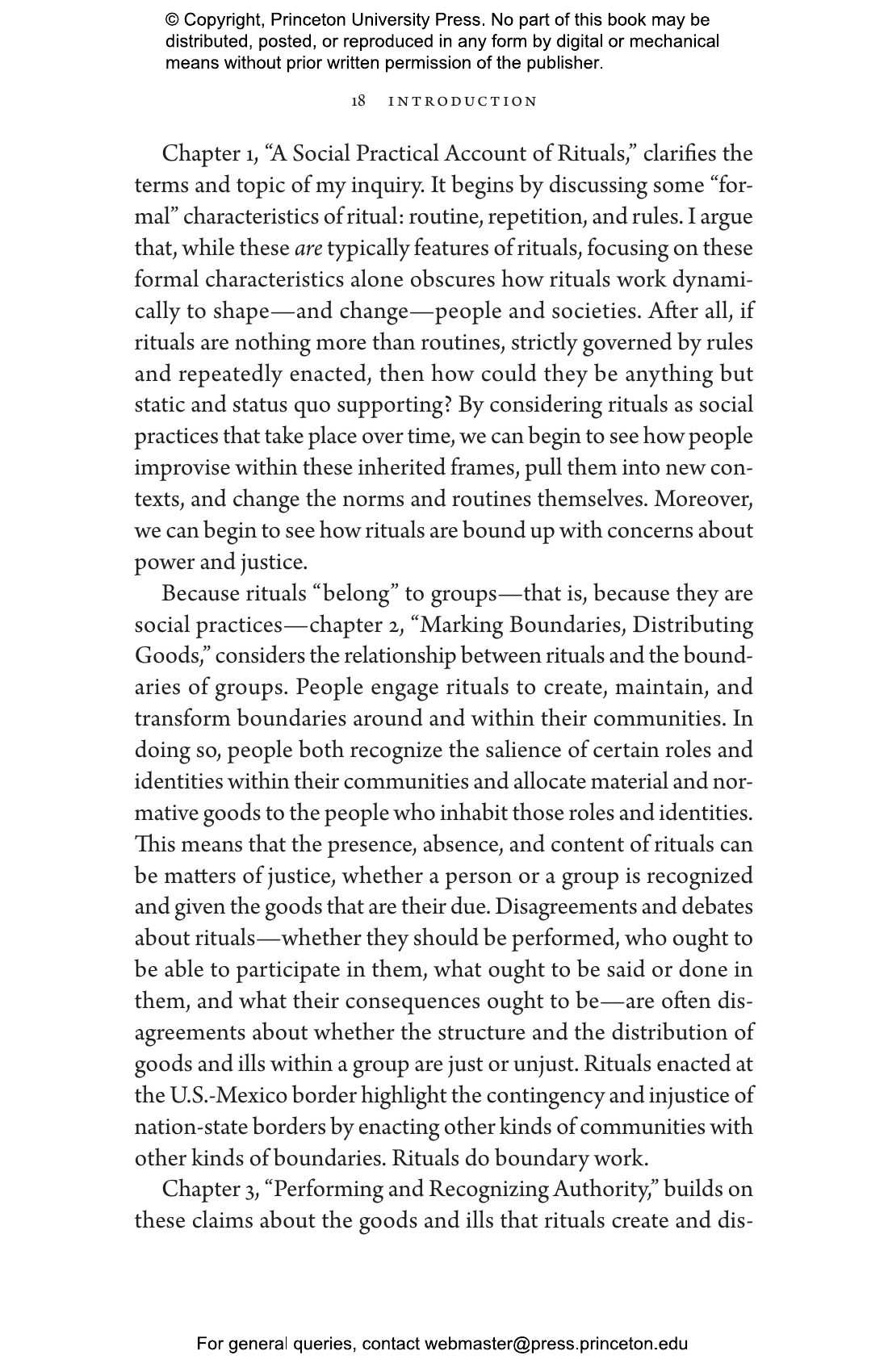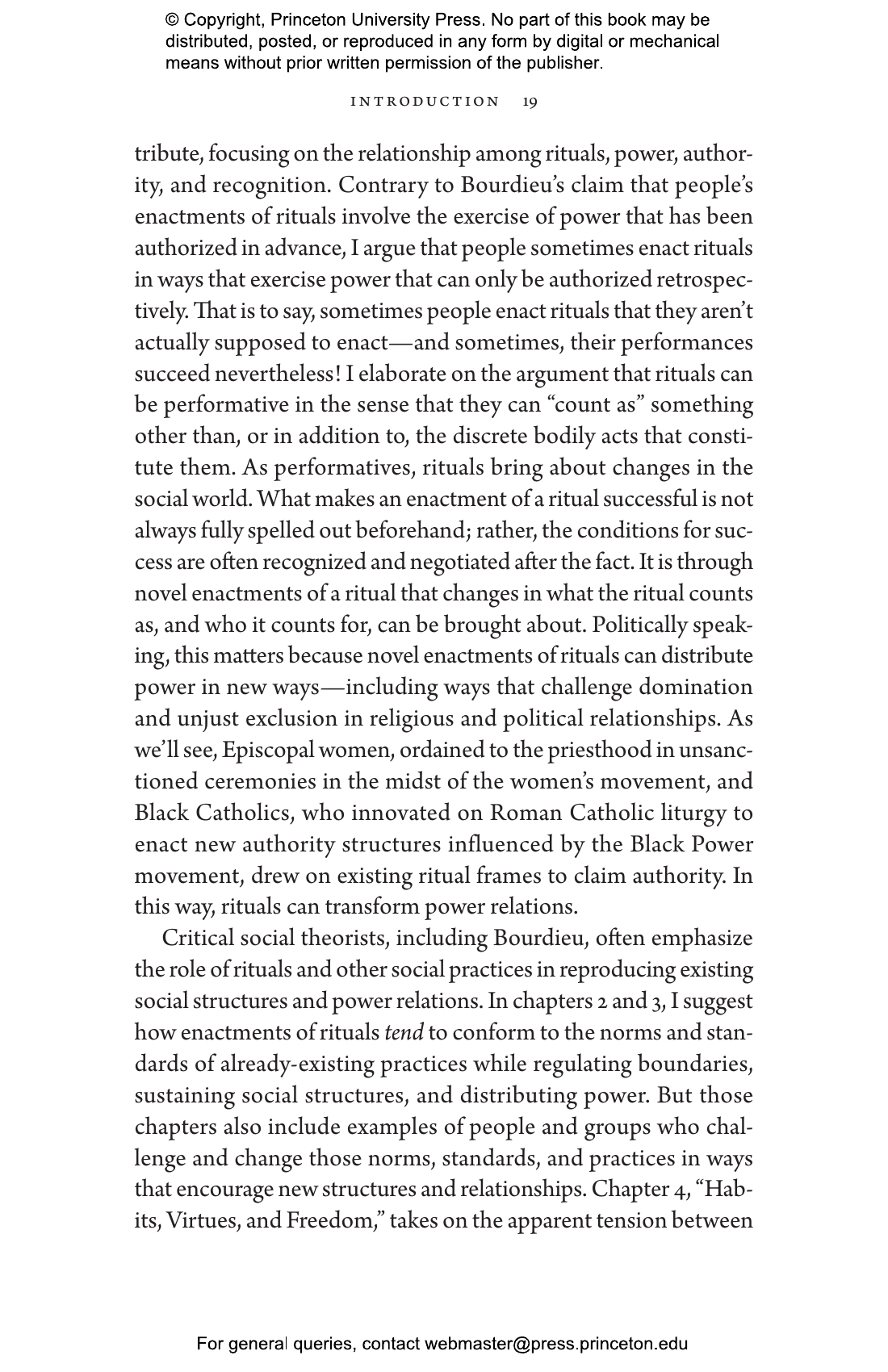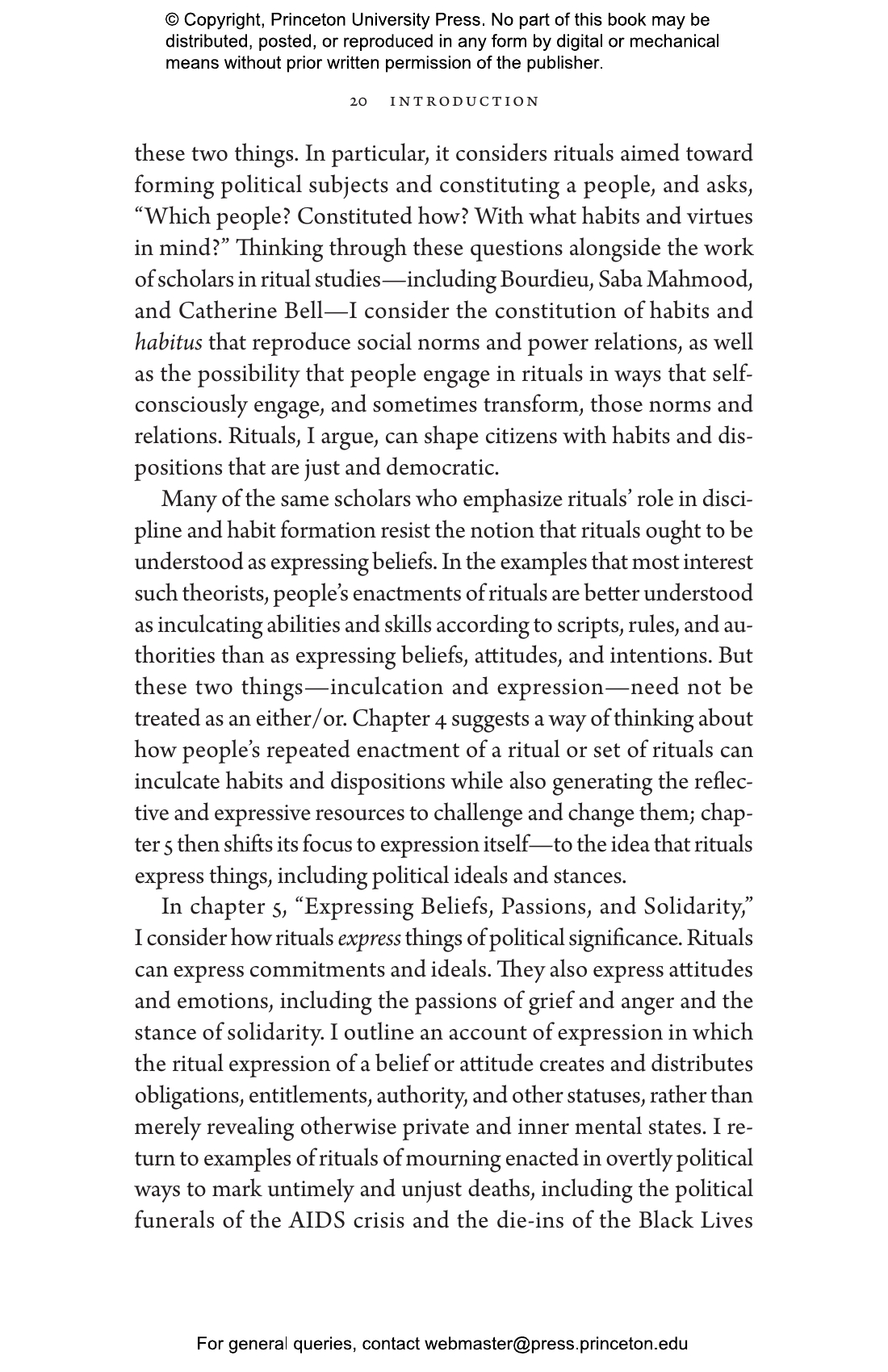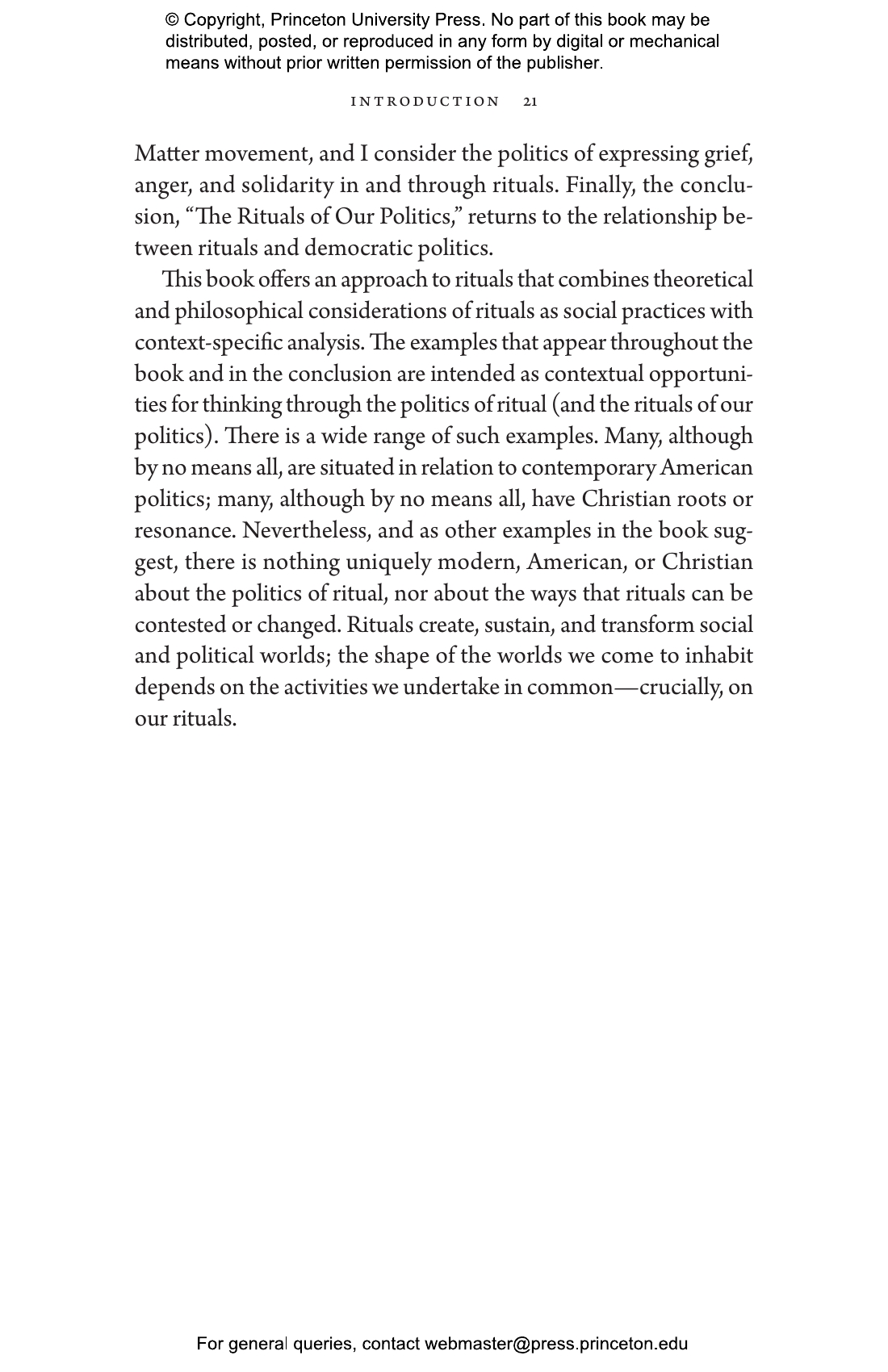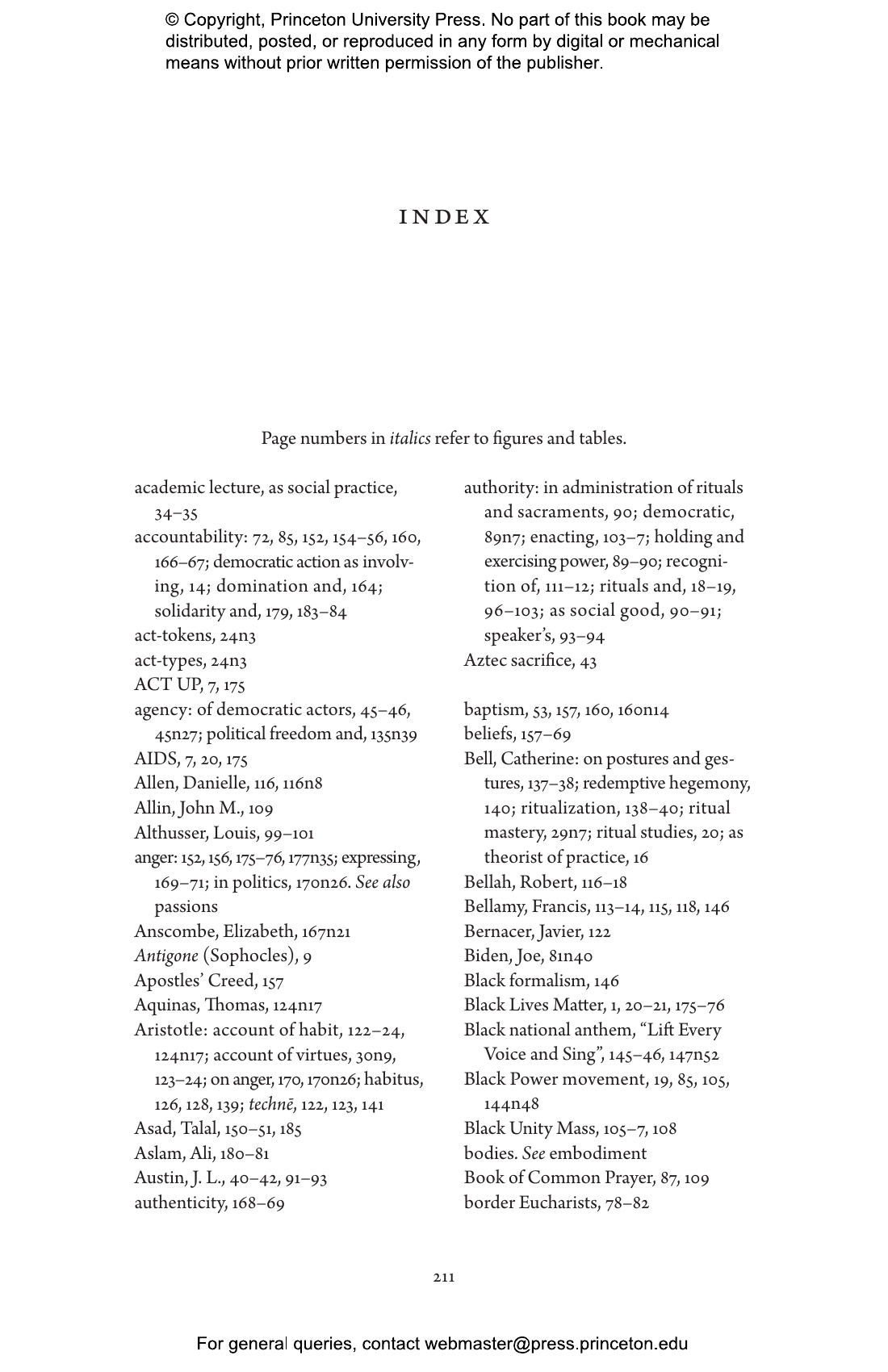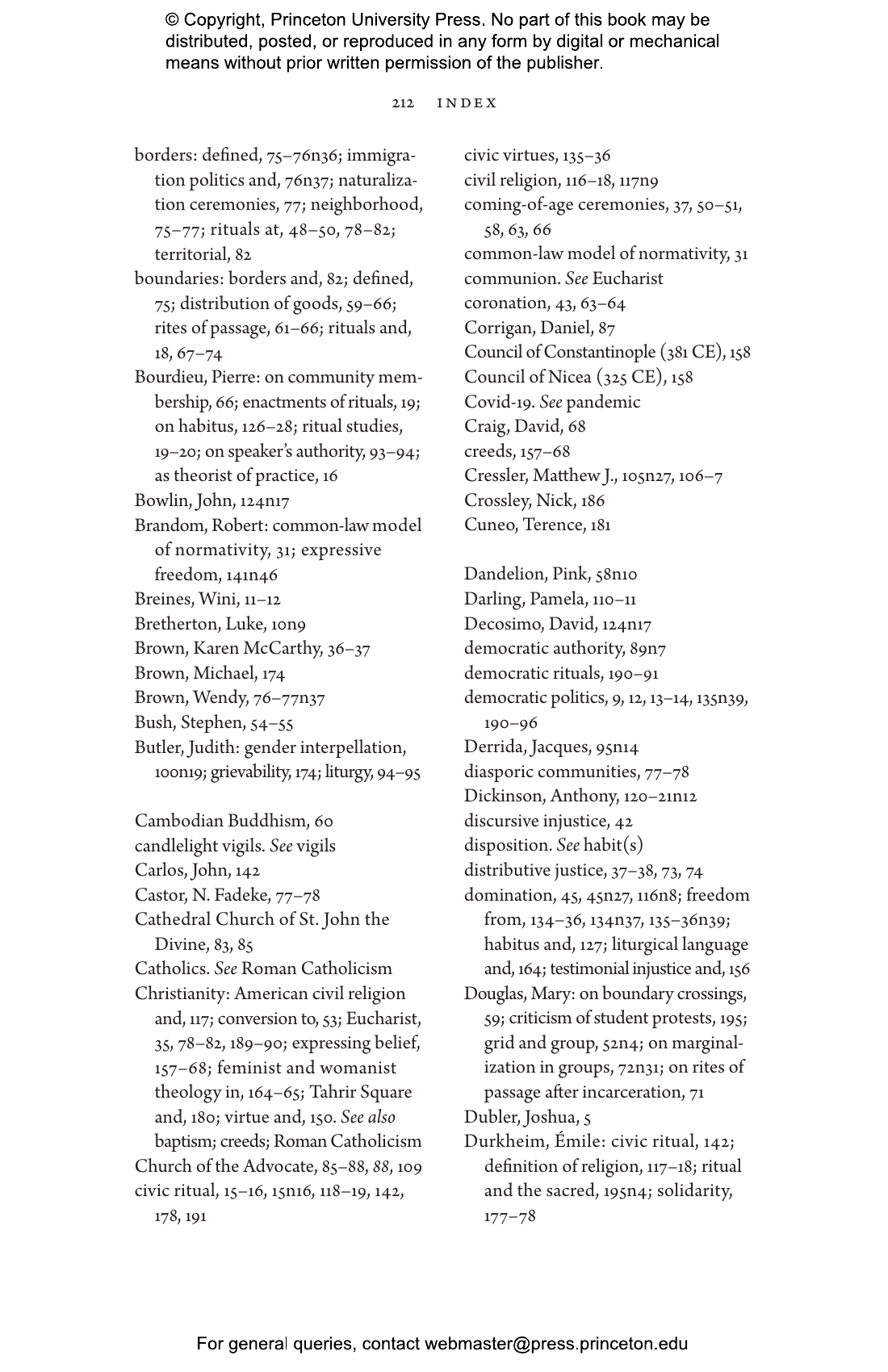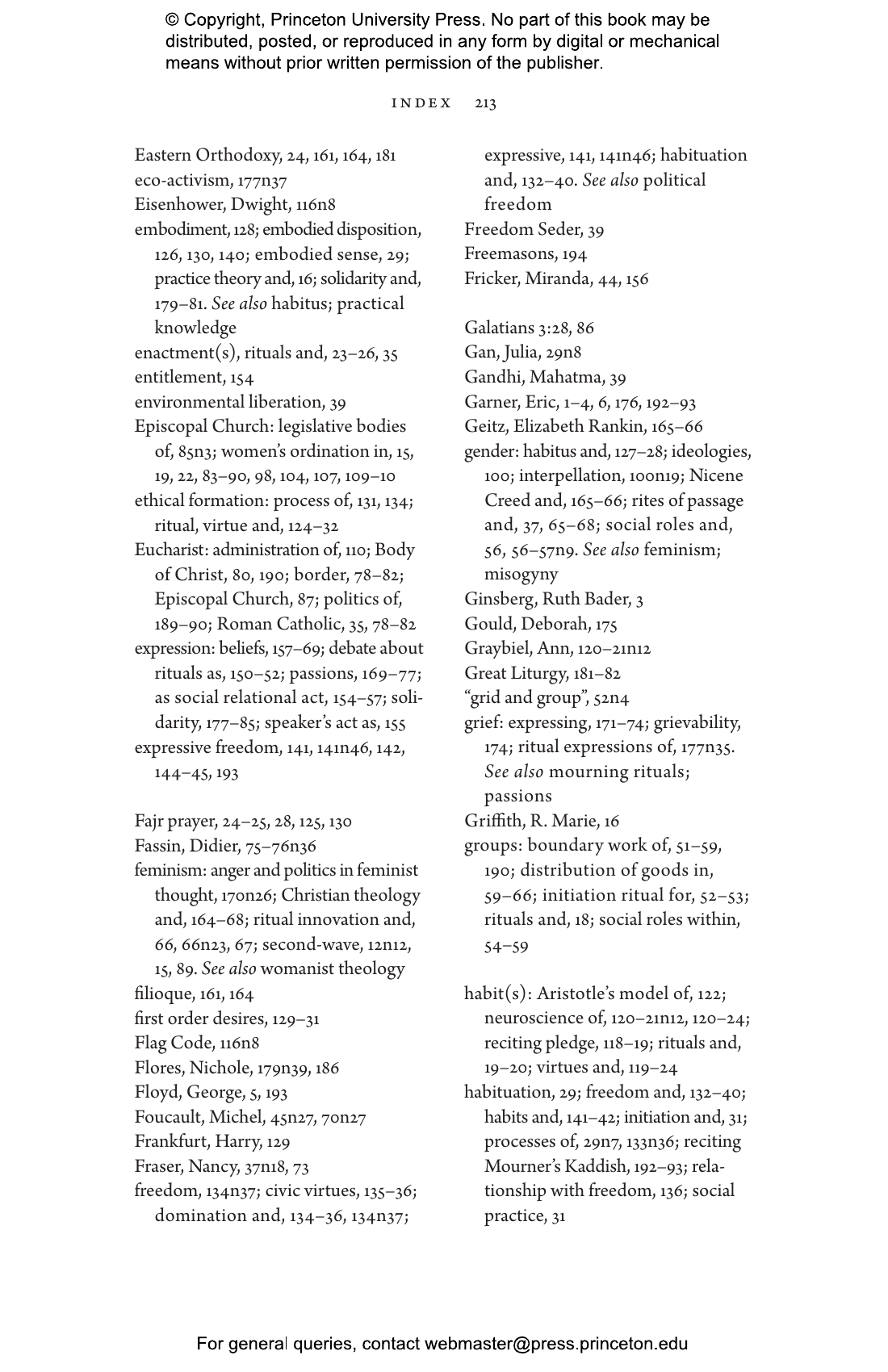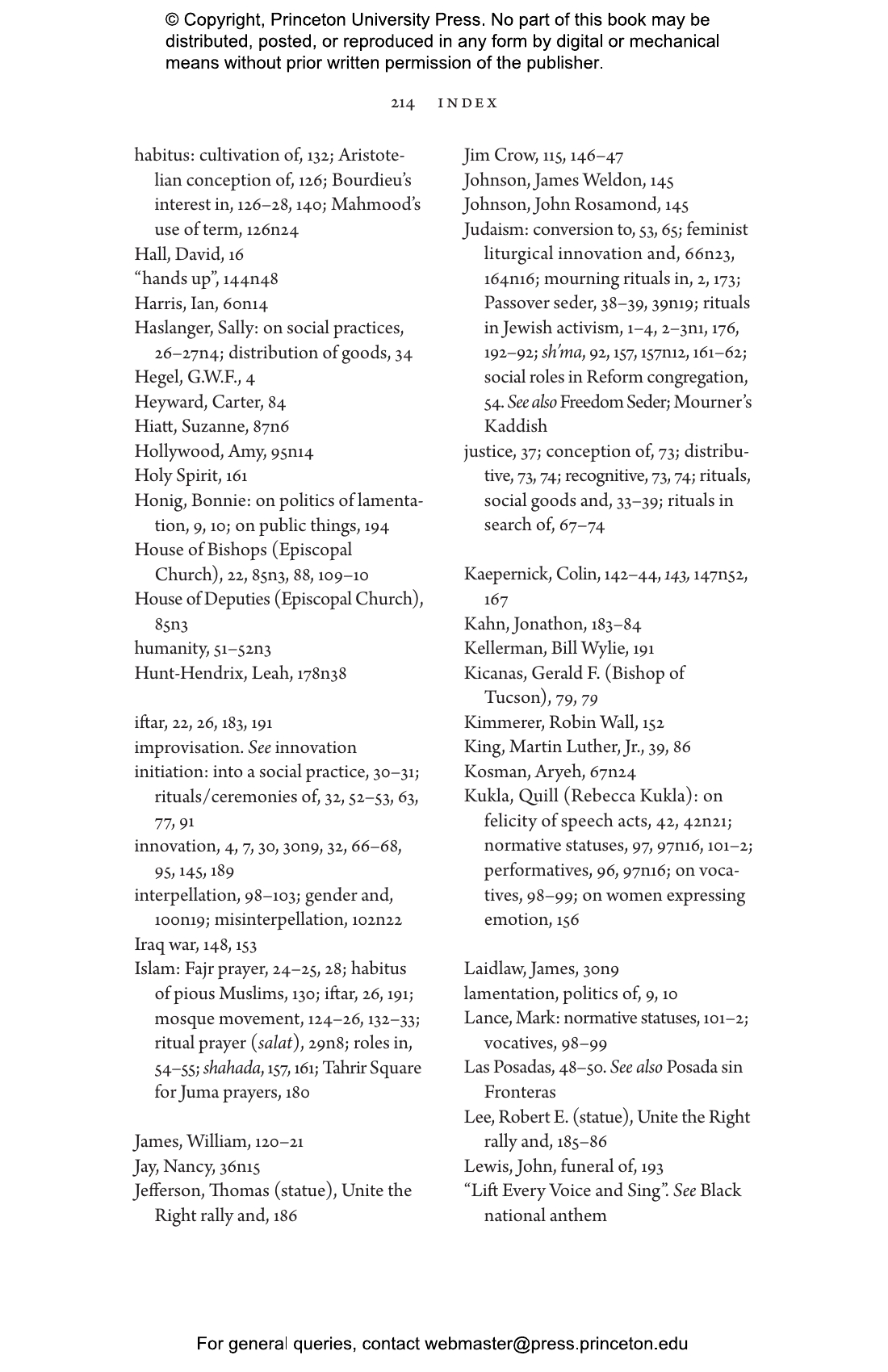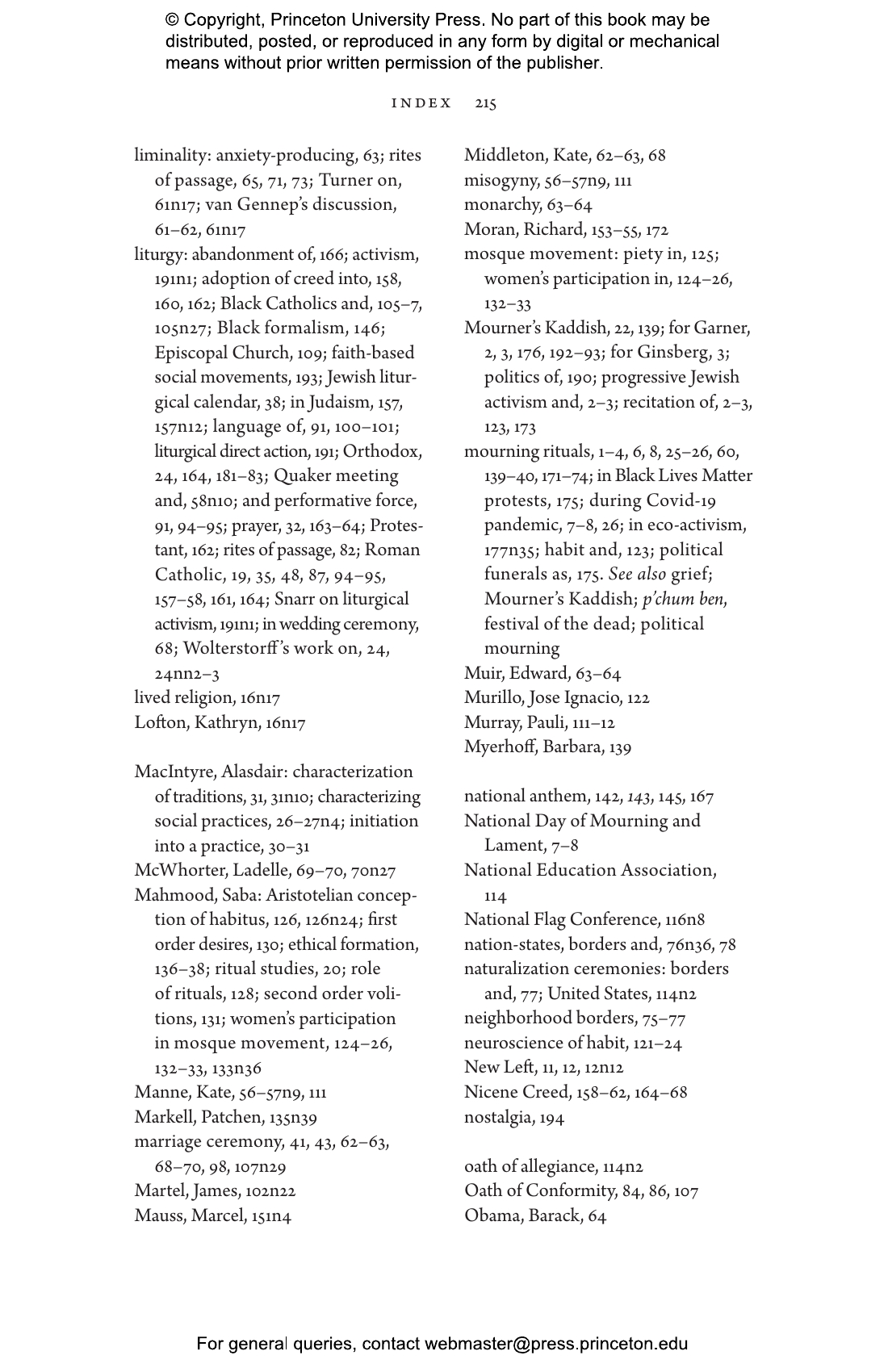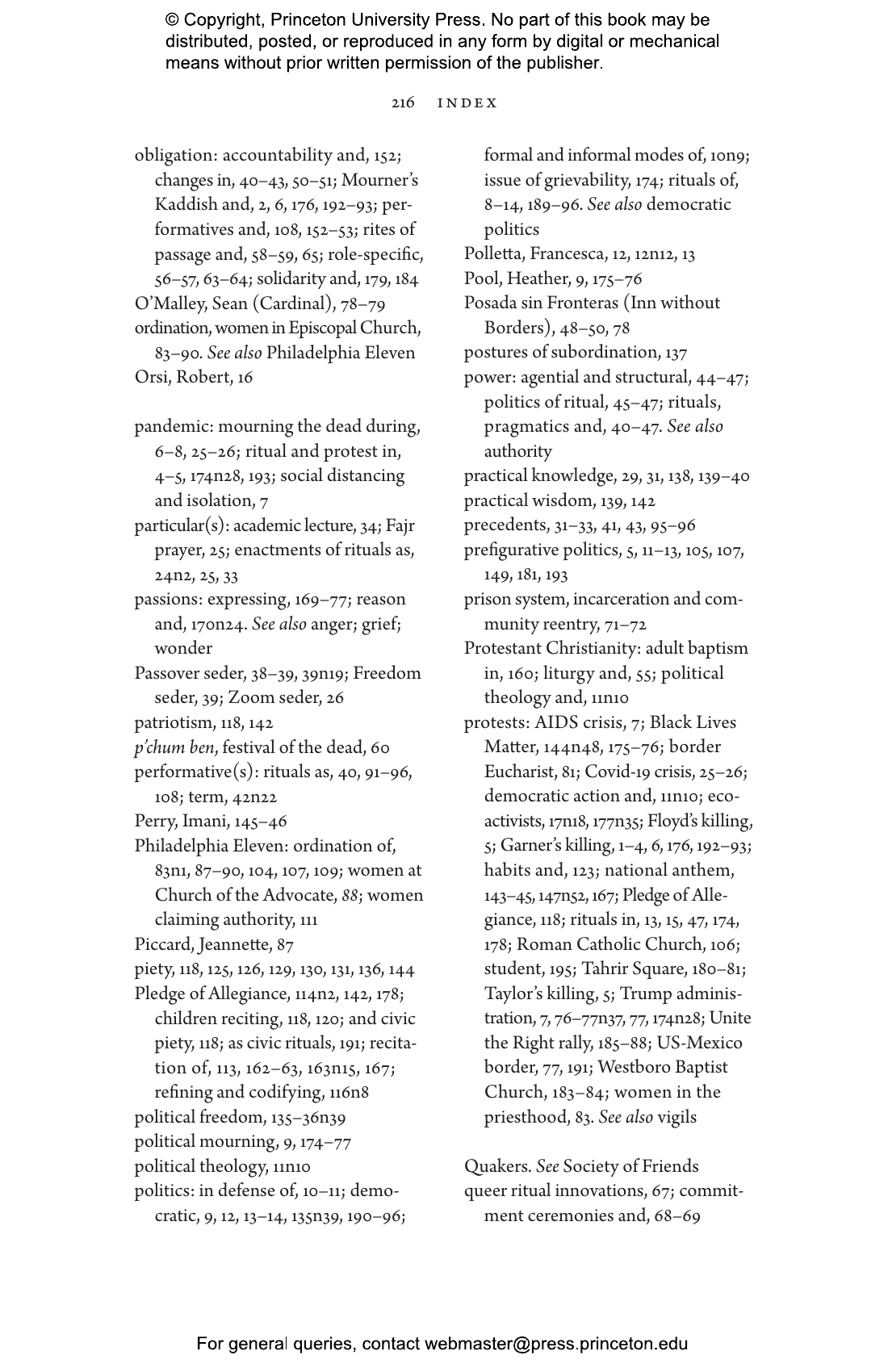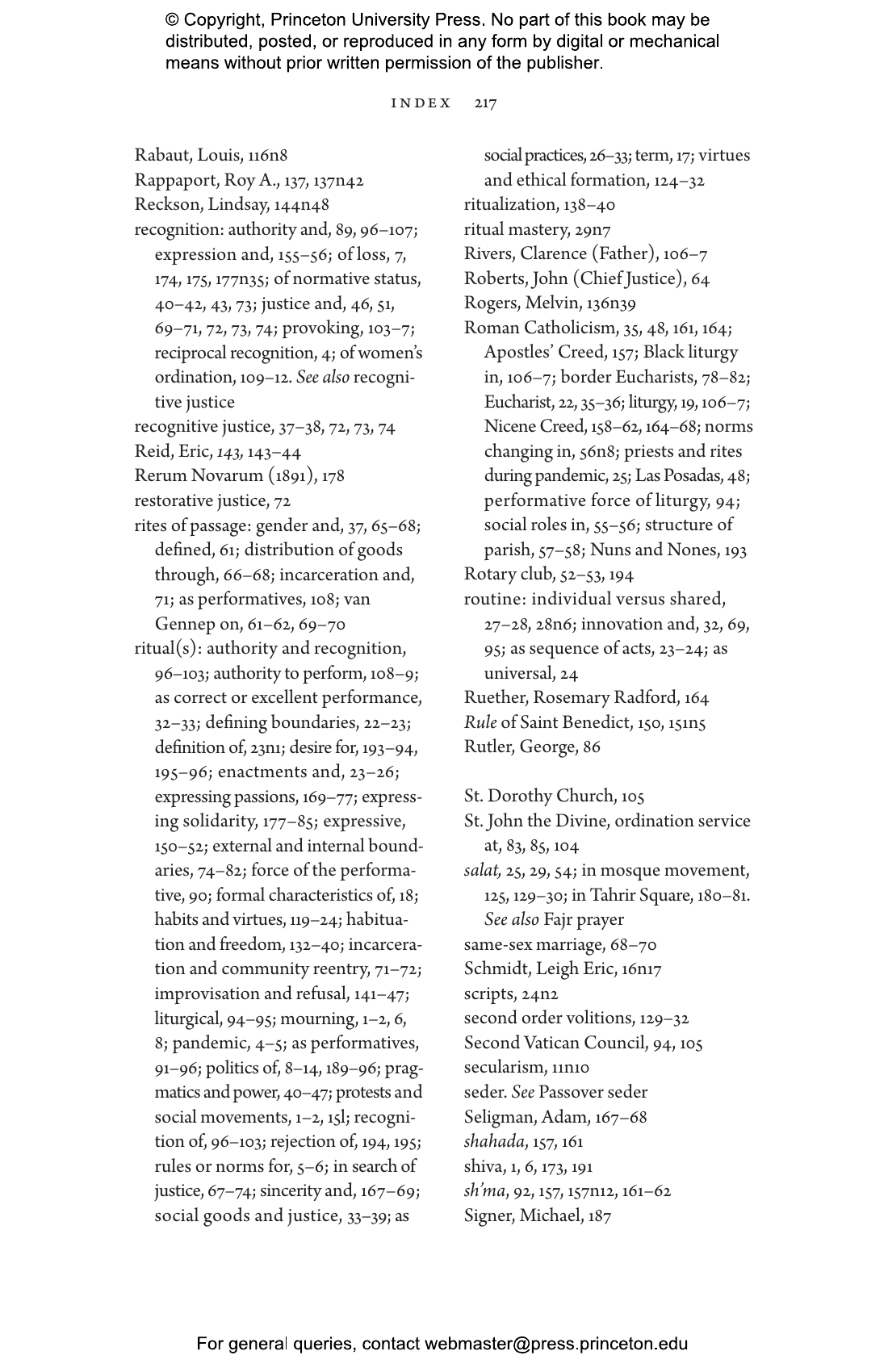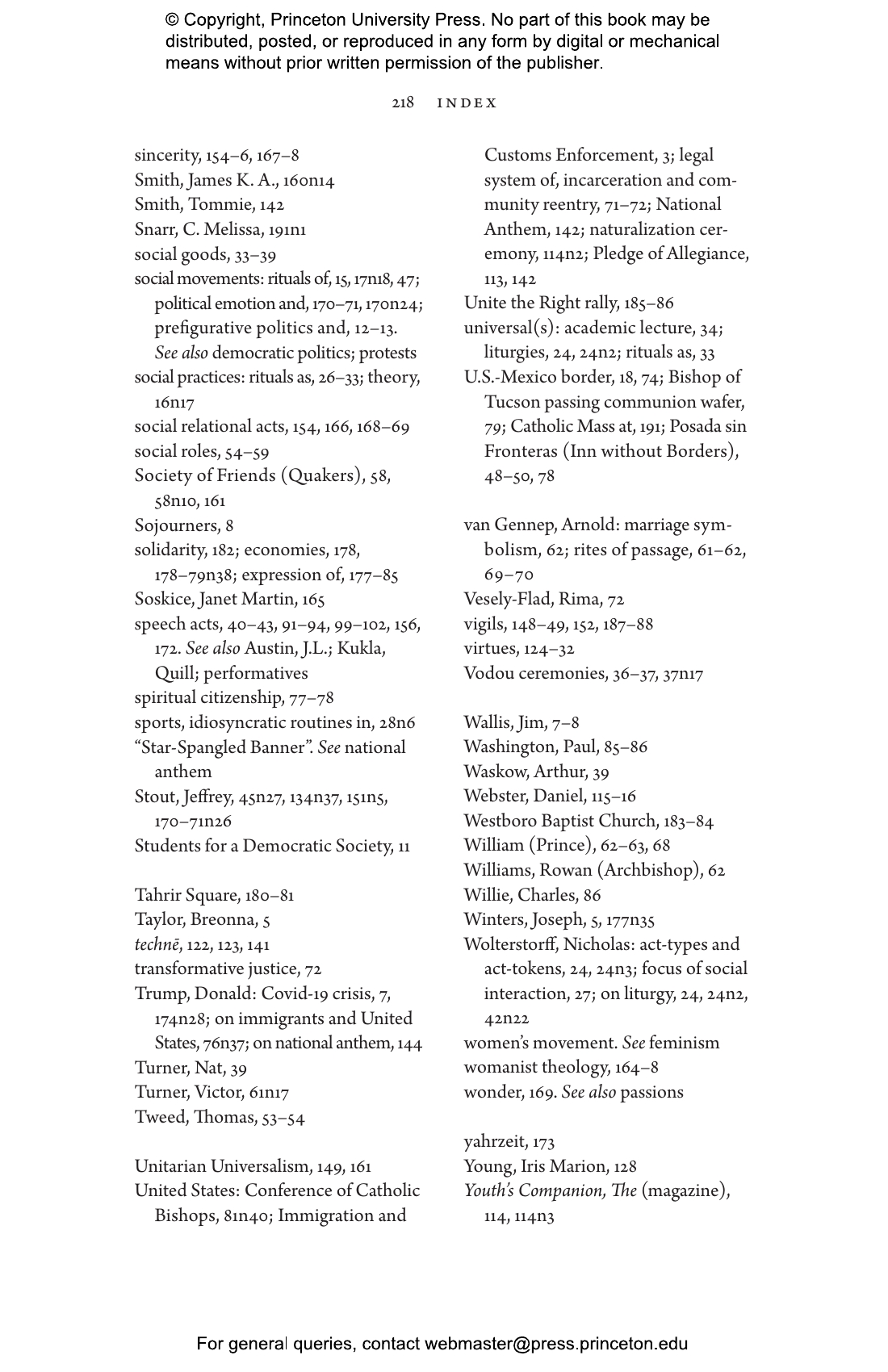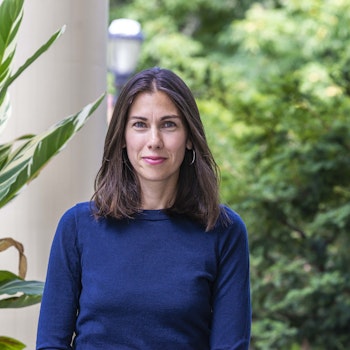The Politics of Ritual is a major new account of the political power of rituals. In this incisive and wide-ranging book, Molly Farneth argues that rituals are social practices in which people create, maintain, and transform themselves and their societies. Far from mere scripts or mechanical routines, rituals are dynamic activities bound up in processes of continuity and change. Emphasizing the significance of rituals in democratic engagement, Farneth shows how people adapt their rituals to redraw the boundaries of their communities, reallocate goods and power within them, and cultivate the habits of citizenship.
Transforming our understanding of rituals and their vital role in the political conflicts and social movements of our time, The Politics of Ritual examines a broad range of rituals enacted to just and democratic ends, including border Eucharists, candlelight vigils, and rituals of mourning. This timely book makes a persuasive case for an innovative democratic ritual life that can enable people to create and sustain communities that are more just, inclusive, and participatory than those in which they find themselves.
Awards and Recognition
- Winner of the Award for Excellence in the Study of Religion, American Academy of Religion
Molly Farneth is associate professor of religion at Haverford College. She is the author of Hegel’s Social Ethics: Religion, Conflict, and Rituals of Reconciliation (Princeton).
"A compact and serious academic work. With ten pages of bibliography and extensive footnotes, Farneth offers readers a wide-ranging survey of contemporary thinking on social theory and the nature and history of rituals."鈥擡mily Soloff, The Christian Century聽
"A welcome contribution to ritual studies and to the study of religion and politics by offering a nuanced and compelling account of ritual activities and their public/political role. . . . Farneth’s combination of theoretical acuity, lucid writing and argumentation, and frequent use of examples make this text a valuable resource. - Nicholas Buck, Reading Religion "
"Reading [The Politics of Ritual] has been an inspirational experience. Drawing from examples largely from the U.S., the author’s insights into rituals in contemporary politics have practical and realistic implications for people struggling in other parts of the world, which, like the U.S., are unfortunately sinking into a dangerous swamp of ideological polarization and unjust violence. Times like this need brilliant ideas and honest efforts, which I have seen in this work."鈥擧ongcan Deng & Chengjian Li, Religion
"Molly Farneth enriches the field of ritual studies by focusing on the progressive political change that can result from intentionally rebellious rituals. . . . [Her] prose is appropriately academic with nuanced analytical sophistication but without pretension or ponderous density."鈥擫aura Strudwick, Nova Religio
“In multiracial, multiethnic societies, ritual can bind groups or reconfigure them. Drawing on philosophy, religious studies, feminist and political theory, and more, Molly Farneth’s The Politics of Ritual makes the case for the centrality of ritual to political life and for the transformative power of ritual to further democratize unequal societies. A joy to read, this is a highly teachable and important book.”—Bonnie Honig, author of A Feminist Theory of Refusal
“The Politics of Ritual demonstrates how rituals not only shape us but we shape and reshape them, and how rituals are never morally neutral but are always to be judged in terms of justice and injustice. Others have written on the political significance of rituals, but never with the breadth of scholarship, theoretical facility, and wealth of examples that characterize this book.”—Nicholas Wolterstorff, Yale University
“This compelling book offers new ways for readers to consider the critical work that rituals perform for—and sometimes in opposition to—democracy, freedom, political solidarity, power relations, and racial justice. Farneth is persuasive in illuminating the power of rituals to make and remake the social worlds we occupy each day.”—R. Marie Griffith, author of Moral Combat: How Sex Divided American Christians and Fractured American Politics
